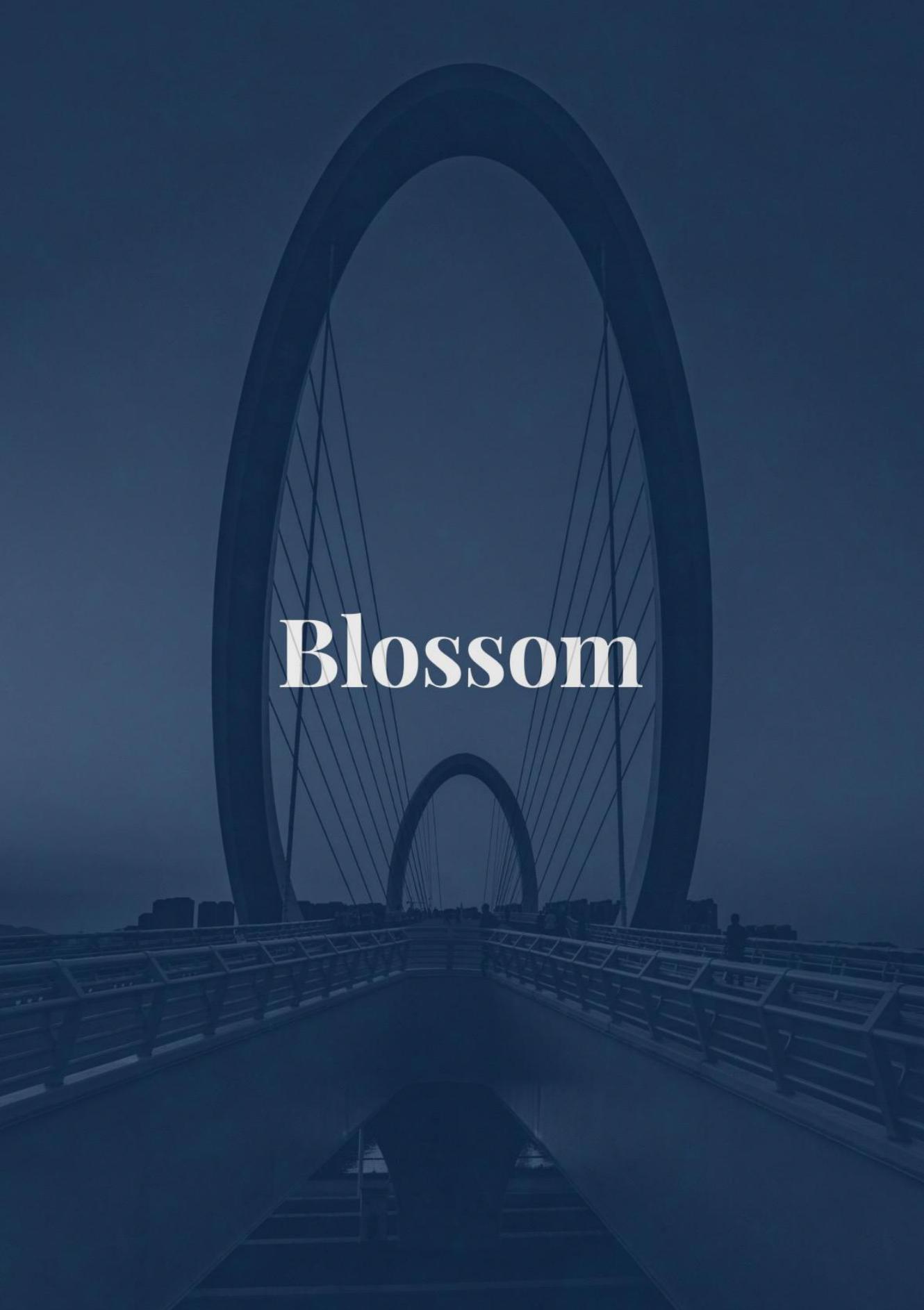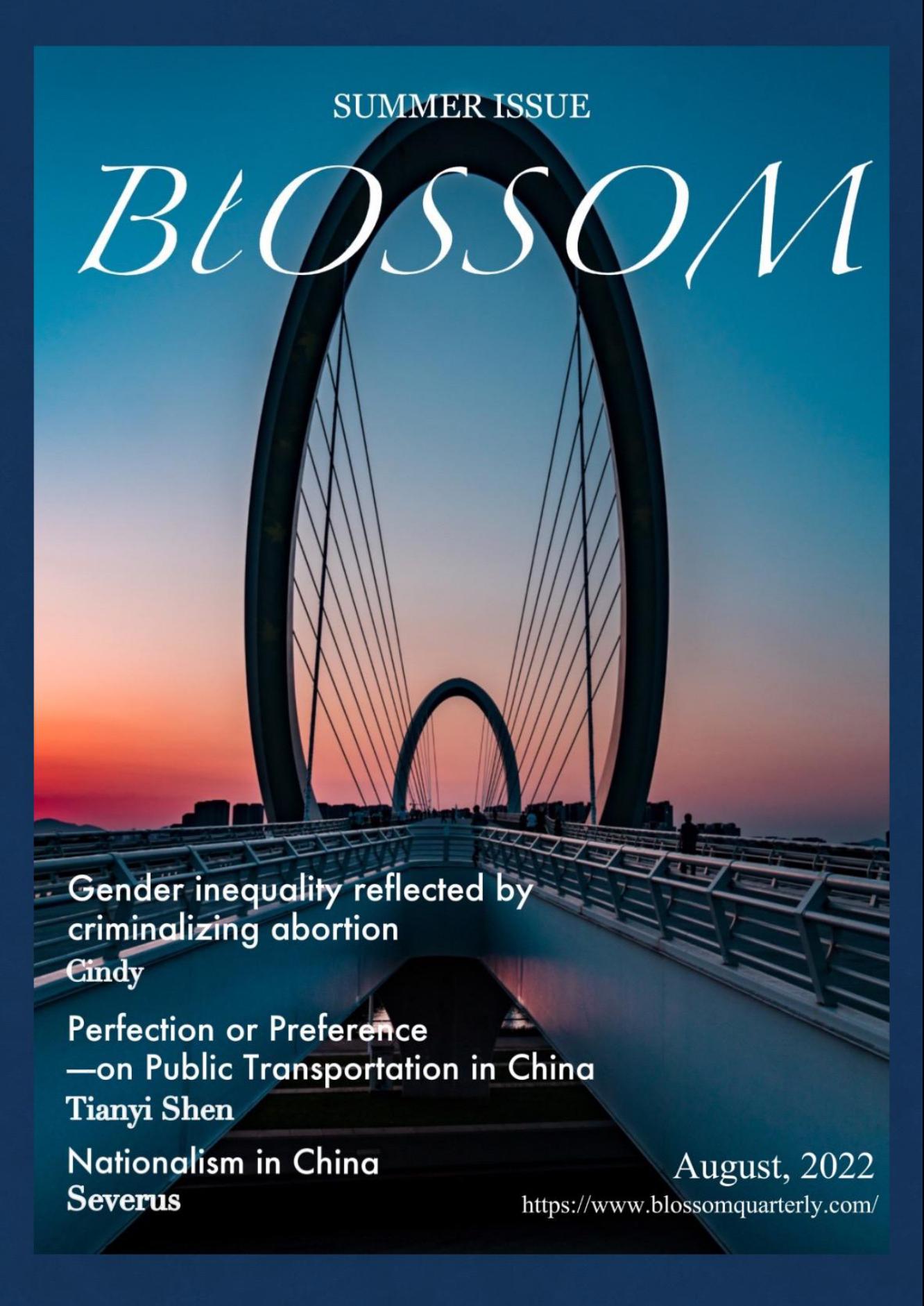



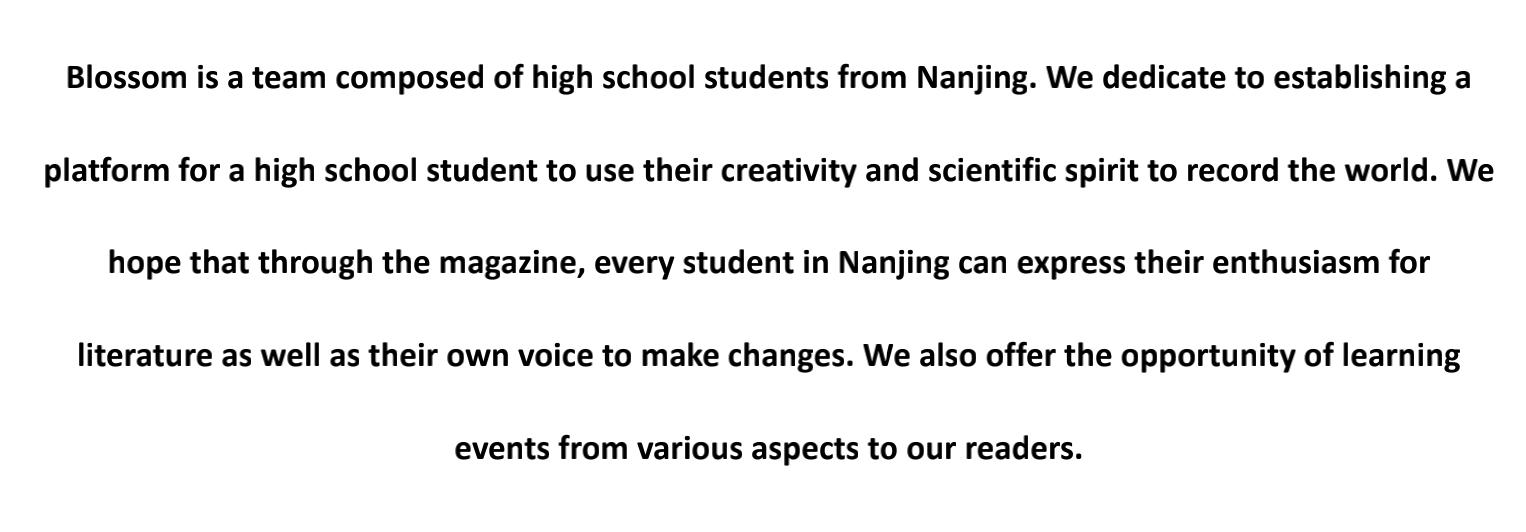









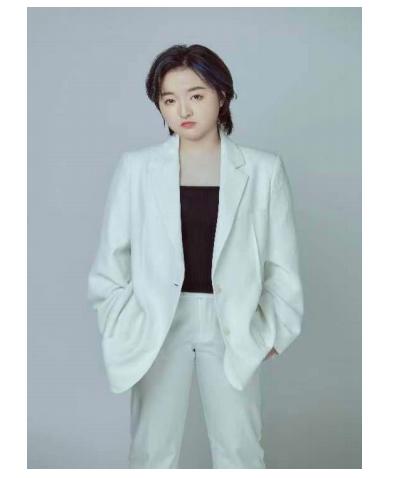
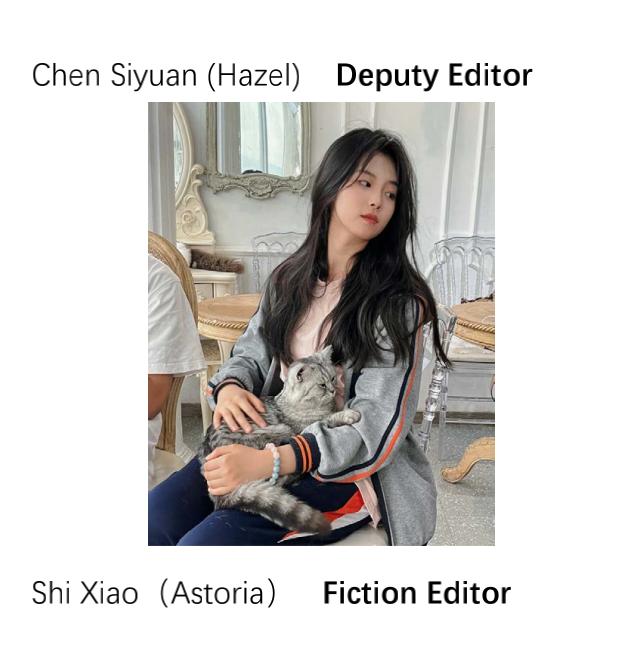
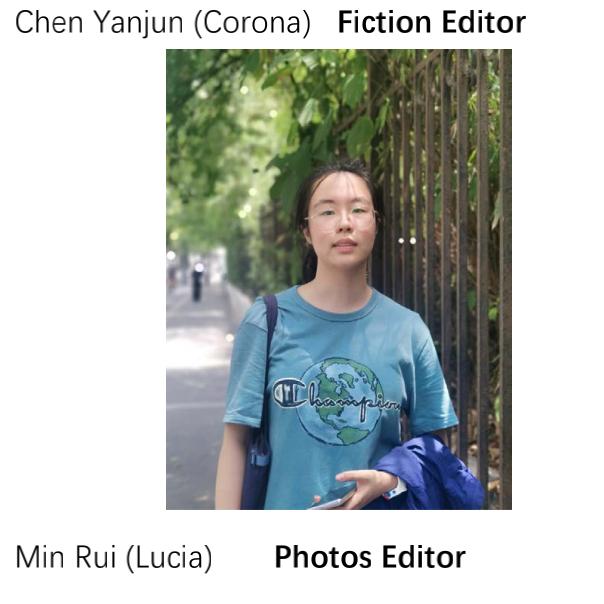
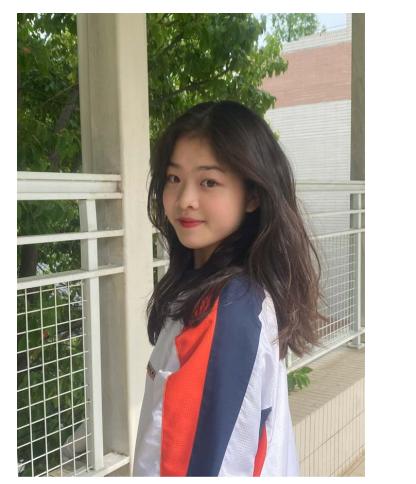



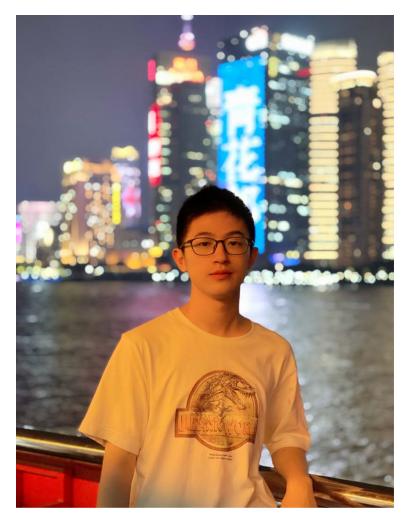
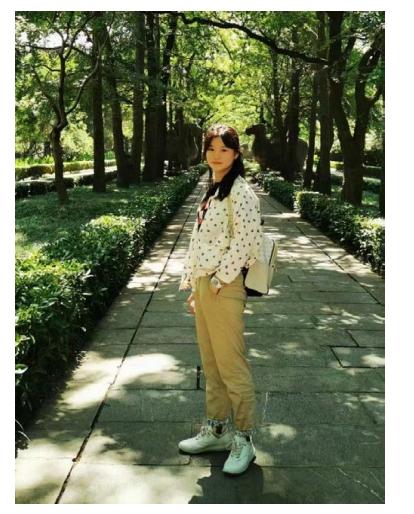






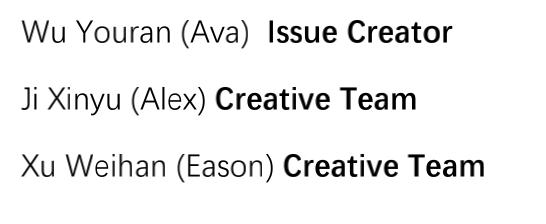

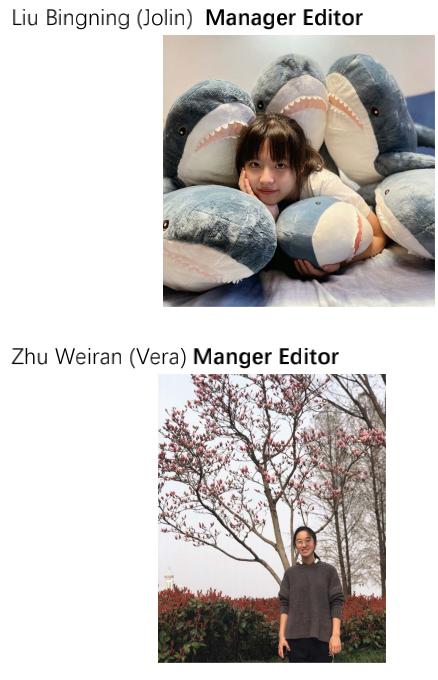


In today's Chinese environment, the term "nationalism" still has the chance of being completely coded word by word, but not necessarily so many, at least not as many as ten years ago.
Nationalism is the biggest authority at the time, and nationalism has the biggest power in the field of Chinese ideas today.
“
We are in the situation, where nationalism, instead of appropriate patriotism, grows rampant throughout out the entire Chinese society, yet noticeable discrepancy, or even annihilation of relevant topics continue to dominate the mainstream.
When a concept is still frequently mentioned, like the freedom of speech, political correctness, feminism, and racial discrimination, no matter what the actual power balance on the field is, it can at least show that they are. There is still room for discussion, and secondly, it has not reached the point where some irresistible conclusion has been reached.
However, this is obviously not the case with nationalism. Nationalism is the biggest authority at the time, and nationalism has the biggest power in the field of Chinese ideas today.
Of course, the dominance of nationalism is certainly not merely a current phenomenon. From a vertical point of view, the entire Chinese revolution and social process since the "May 4th"movement in the 20th century, except for some occasional brief periods, the vast majority of the pages are actually with a strong nationalist background.

As for the horizontal perspective, the global rise of national populism in the 2010s has also made nationalism the most important political theme in the world we live in at this time.
Perhaps for many, a world dominated by nationalism is a normal world, and a world in which nationalism is less important would be unimaginable.
However, nationalism has never been a set of social programs, and it does not have the ability to provide the ultimate answer to the destiny of mankind. Its radiant stage should be limited to specific historical nodes and fragments. It was once considered by the ideological circle to be only a temporary transitional state of human life.
However, subsequent historical development did not follow this theoretical script, and we can clearly see that in a large number of societies, nationalism has long occupied the center of the political agenda.
As an ideology, once it is separated from the functional scene of nation-state construction, the core of nationalism should be said to be quite empty. However, it did indeed provide the most important legitimacy for a number of new regimes that emerged after the 20th century, and there are even many cases that have withstood the test of time and are still strong to this day.
At last, whenever I think about nationalism, I'm always struck by how simple, primitive, and satisfiable human needs are: they don't even need some kind of generous future promise, elaborate social blueprints, and more, as they did not so long ago. You don't need to see tangible evidence that your situation is improving.
They have shown amazing tolerance for the injustice they are suffering. The only element left in them that could be called publicity has nothing to do with the public issues of their society that they can actually access and that can really affect their immediate well-being.
Their so-called feelings of family and country are completely thrown into the distinction, opposition, and hostility with others, even if most of them will never have the opportunity to see those others who make them grit their teeth in their entire lives.
Through the narrative of the author, the life of Edna Pontellier unfolds. The story has painted a picture in my mind, and I can see a woman slowly walking into the roaring waves of the ocean, which was lit up a little by the full pale moon on a dark and gloomy night. It’s not the end of her life but her revival.
Women are always expected to fit into society's secular expectations and rules. They are never entirely treated as individuals; instead, they are considered to be loving and amiable daughters, wives, and mothers. They are the possessions of men, from father to husband, and they are respected as “Mrs. plus their husbands’ last name,” not themselves. Edna has felt depressive for a long time in her marriage, for she doesn’t love her husband, and she is not a mother-woman when it comes to her children. The whole story gives me a hazy feeling, for the oppression Edna feels was hazy, not very obvious, but still lingering, just as the author’s saying, “It was like a shadow, like a mist passing across her soul’s summer day.” Edna is trying to drag herself out of all the roles she was forced to play. She wants to be a human besides a woman. She wants to be independent, independent from her husband and her children. She tells her friend that “I would give up the unessential; I would give my money, I would give my life for my children; but I wouldn’t give myself. I can’t make it more clear; it’s only something which I am beginning to comprehend, which is revealing itself to me,” which impressed me a lot.

Edna’s love for Robert is a sign of her awakening. However, what makes me sad is that even if she leaves her husband’s house, being fi nancially independent, she is never an actual free individual in her lover’s eyes. Robert keeps avoiding Edna, going to Mexico, and leaving Edna’s house. He thinks of Edna as another man’s possession, as he says to his lover, “ Because you were not free, you were Leonce Pontellier’s wife.” the fact of her lover not treating her like she only belongs to herself and his firm leaving are the last straw of Edna’s suicide in the end. Although it is controversial to say that finding a lover outside the marriage is a way of seeking one’s freedom, still that’s the awakening of Edna’s own heart, for, in the case of a woman at that time, she doesn’t even have a choice besides marrying to a person she doesn’t love. Being a wife is her fate.
What’s more, symbolism also plays a significant role in this story. The ocean witnesses and stands for the awakening of Edna. At the beginning of the novel, Edna teaches herself to swim during the family vacation at the resort. This signifies her initial awakening of being independent and free. Interestingly, before she falls in love with Robert, she doesn’t dare to swim in the ocean, but after that, she falls in love with the feeling of swimming in the sea, which represents her self-awareness. The sea is the place where she can free herself. At the end of the novel, Edna chooses the
ocean to end her life, and it can be ironic that the place that frees her also kills her. However, I think her death in the ocean is also a revival, symbolizing her pursuit of freedom and her rebellion against the patriarchy that traps her life as a wife and a mother. She finally takes off the chain on her neck placed by the society forever. Moreover, here’s a pessimistic thought of mine: in the modern society, women have relatively more chances to get rid of the chain and swim freely in the ocean, like they can just divorce, but in Kate Chopin’s era, is she trying to desperately tell that the only way a woman can completely free and be herself at that time is death.
Another example of symbolism is the piano. Just like the ocean, at the beginning of the novel, Edna hears Adéle playing the piano, which is her first awakening. She feels that same when Mademoiselle Reisz plays the piano. Hearing women play the piano, Edna knows that women can have their own work to do, and it is a sign of her trying to be independent and finding her own thing to do, and she starts to paint. It is the music from the piano that awakens Edna to be free and independent.
In conclusion, this novel is a masterpiece. I feel so connected to the life of women at that time. I guess it must be a hit for the society in the 19th century to read this novel, for it is so cruelly true and offensive to the patriarchal society.
This novel is impressively weird. It is like a personal diary from a woman who has a mental disease, which I think is today’s postpartum psychosis. Nowadays, for postpartum psychosis, we have relatively advanced and scientific treatment methods; however, in the late 19th century or early 20th century, the treatment for women’s mental disease was something like fresh air, a sea bath, and bed rest because women are considered physically weak and mentally vulnerable.
The woman in the book is considered to need rest by her husband, who is a physician. She is trapped in the room, in the domestic sphere. The only thing she needs to do is eat well and sleep well. She is not allowed to take up her pen to write, and she cannot have her thoughts. On the surface, her husband treats his wife well: treating her illness, calling her “dear” all the time... However, her husband does not treat her as an individual with her thoughts and does not respect her feelings. I think the man treats his wife like a pet or possession. He takes all the control in their relationship, which has been the actual situation for women for a long time, even today.
The yellow wallpaper in the room is the novel's name, which plays a vital role in the book. In my view, the narrator woman projects herself and her own experience in the yellow wallpaper. She depicts the design of the wallpaper as “not arranged on any laws of radiation, or alternation, or repetition, or symmetry, or anything else that I ever heard of,” which is a bit weird, but maybe it is what a person who suffers from deteriorative mental health state sees. The narrator believes that the woman/women in the yellow wallpaper are trapped inside, and she wants to free them. This also represents the author Gilman’s fight against the oppression of women of that time. She wants to free the women, and this novel she writes is probably one of her weapons.
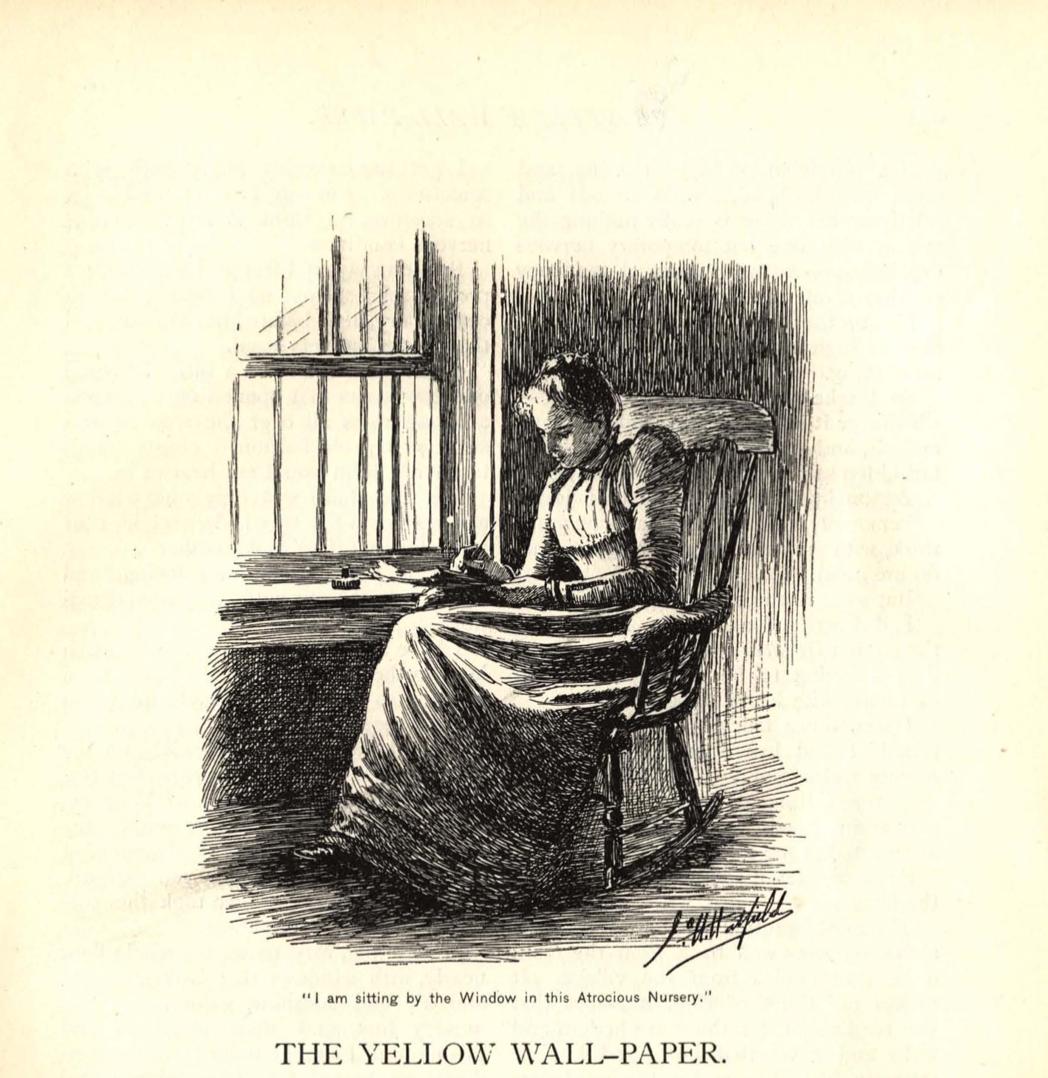
This novel is relatively short, with three main characters. Here’s one person who can not be ignored: Jennie, the narrator’s sister-in-law. She lives with the narrator in the house. She is a woman herself, but maybe because she’s John’s sister, she wholeheartedly believes that the narrator is sick and weak. Jennie even helps her brother to supervise the narrator. The character Jennie is a metaphor for those women who are brainwashed by the patriarchal society, and they don’t realize the oppression, or they take it as usual and choose to live with it. It reminds me of some saying that “ It isn't always the oppressors that cause the most damage; it's the people who're like you and still don't fight back or even stand on your opposite side.”
Finally, the weirdest I feel about the book is the ending, and it’s very interesting. The narrator eventually believes that she is a woman from the wall, and she strips the paper off the wall to free the woman. When John comes back, she refuses to unlock her door; when John goes in, he finds her creeping around the room, rubbing against the wallpaper. John’s reaction is a surprise for me: he faints. From his side, it’s maybe the first time his wife is out of his control, for she refuses to unlock the door. Then his wife is acting abnormal and creeping around all over. So it must be a shock for the patriarchal figures to find that women are not listening to them anymore and are not acting like they wish them to act anymore. I guess that’s why he faints.
Moreover, the words the narrator says, in the end, are creepy and somehow powerful for me “I've got out at last," said I, " in spite of you and Jane? And I've pulled off most of the paper, so you can't put me back! ” I think it’s the moment the narrator finds her individual and feels she is free, like swimming into the ocean for Edna in The Awakening. The name Jane appears in the narrator’s words for the first time in this novel. At first, it confused me: who is Jane? But after thinking about it for a few minutes, I think there’s a possibility that Jane is exactly the name of the narrator, the owner of this personal diary. Because the ending gives me a feeling that she escapes from her old self and finds who she is and her freedom--as a brand new individual. She even says, “so that I had to creep over him every time!” She refuses to be the one who listens to every word her husband says, the one who submits to the wrong treatment of postpartum psychosis, which only makes her situation worse, the one who is in her husband’s control, who is weak and sick in the view of the patriarchal society. She wants to overpower her husband and steer the boat of her own life. She wants to fight the oppression that women have suffered for centuries.
When we talk about “rap”, we always think about Hip-hop culture.That’s correct. In fact, rap originated in the mid-1970s in the South Bronx area of New York. The rise of rap and the birth of rock 'n' roll, both in the 1950s, originated in the African-American community, and this new form of music gradually attracted more and more musicians from all over the world to participate in the creation of rap.Rap has evolved into a rich variety of offshoots such as West Coast Rap, Southern Rap, Pop Rap, Old School, Midwest Rap, Hardcore Rap, Gangsta Rap, East Coast Rap, etc. What we call Hip-Hop is a new term born from the synthesis of these genres with elements of today's pop. Although it was thought in the early 90s that this "rambling, foulmouthed, rebellious" music would soon disappear, the fact is that in the late 90s, with a new breed of rappers and predominantly white rap-rock, music once abandoned by blacks returned to the forefront of popular music. At least in the new century, this trend will not subside.
Rap is an important part of music, a major tone in street culture, if we want to draw an analogy, rap is a "dark chocolate" in the world of pop music.
If you are a crazy fan of rap, then you must have heard of early Hong Kong rap, which can be said to be the beginning of Chinese rap, represented by figures such as Softhard. The first generation of Chinese rap occupied the entire decade of the 1990s. The first generation of musicians, as rappers recording folk forms of existence in an era of constant openness, were subjected to the same pressures that a revolutionary is subjected to. With a full-blooded melancholy and anger. As Cui Jian sings, "I move forward against the wind ......."
The second generation of rappers represents LMF and Kindergarten Killer, but what distinguishes the second generation of rap from the first is its unique view of modern culture, where anti-criticism and anger are deconstructed into hippieism, and the intuition of society has changed from "I don't understand why the world is changing fast" to "how complicated and how cruel reality is. Reality has become cruel". If rap before was just a musical instrument, it is now more of a new cultural movement that encompasses everything new you can feel, it is a new force that is not just limited to music and rhythm. The words are the soul of rap, and when you chatter along with it, it's as if you're reading a manifesto for new life.
But even though rap had changed culturally by that time, in China the culture has always been underground, and people still get used to thinking that people who do rap aren't good people. And in the years that rap culture, which runs counter to the style of music appreciated by the general public, has flourished “in the underground”.

During Eminem's years of popularity, Chinese rap fans were both envious and eager for their underground counterparts to one day stand on the big stage. When the film 8 Mile was broadcast about Eminem's own experiences and rap culture, Chinese rap fans formed an organization and held the first 8 Mile Underground competition in Xi'an. The 8 Mile Underground is now almost the most prestigious and recognized underground competition in China for rappers, but at the same time it was still underground due to the stylistic differences with mainstream music.
In the early days of the 8 Mile Underground competition used “battle” for competition, in rap, battle is the meaning of rap confrontation, is between two players with each other with aggressive rap competition, can be two people battle each other, can also be a team together Battle, such as team battle session. In the battle is basically to use freestyle to refute each other , this tests the strength, intelligence, and reaction.
And when rap really caught on with the Chinese public it was in 2017 when THE RAP OF CHINA, a show that aired on the internet and exploded in popularity.The show has found many great rappers, many of whom are winners of the 8 Mile Underground competition. These rappers were given a wider stage to perform on the show, and they brought many great songs on this show. These rap songs made the audience think that rap was not what they thought it was like before. Gradually, more and more people are embracing rap and hip-hop.
At the same time, more people have become Hip-hop lovers, and there are many rappers in different parts of China who are dedicated to rapping in their local dialects, represented by CDC from Chengdu.They want to spread the dialect in this way, which is at the same time guarding the culture. The show Rap for Youth, which aired in 2020, people got to know rap songs with very different styles. In this show, there were those who insisted on rapping in dialect, those who exposed social events with their own rap songs, those who delved into rap techniques, and those who cleverly combined pop songs and rap. The songs performed by these s singers on the show not only showed the audience another side of rap, but also recognized the diversity of rap.Like on the show, a couple of the rappers collaborated on a rap song in which they sang, "Everything can be rapped about."
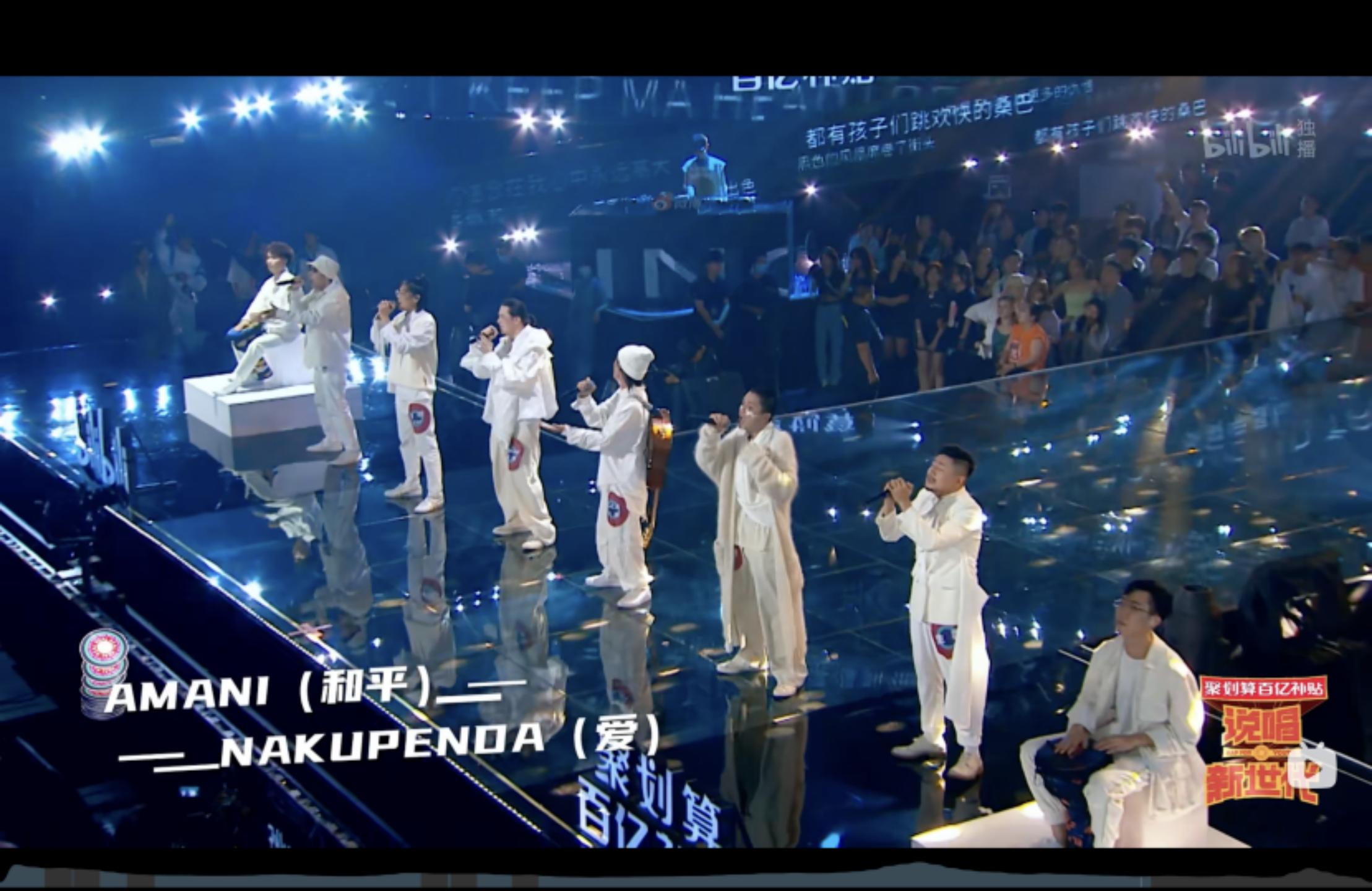 The show Rap for Youth, which aired in 2020, people got to know rap songs with very different styles.
The show Rap for Youth, which aired in 2020, people got to know rap songs with very different styles.
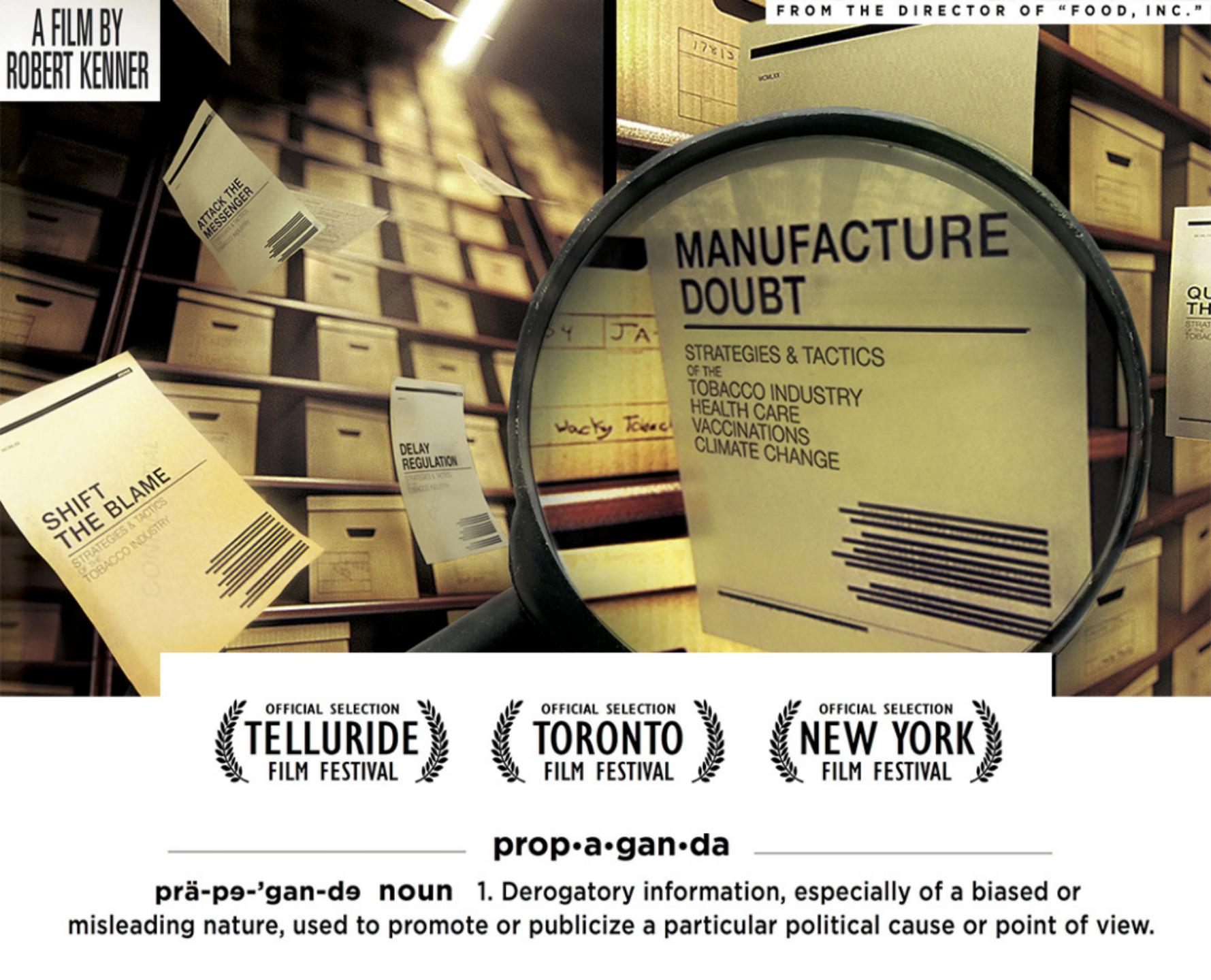
The film merchant of doubt reveals the covert relationship between science, society, and politics. Although some people naturally assume that scientific theories should not be masked by the lies of politicians and merchants, the film utilizes multiple historical cases and current situations to demolish this somehow naïve assumption.
Despite the fact that the science community had long reached the conclusion that there was a correlation between cigarettes and cancer in 1950, this fact hurt the profits of cigarette companies, which earned billions of dollars a year through the business, thus motivating them to hire public relations to assist them in shirking the responsibility. They employed “scientists” to announce "doubtful" statements such as "it might be harmful, we do not know for sure" to cover the health concern. Also, they hired "spies" as firefighters to render non-fireproven furniture the scapegoat of fire accidents instead of cigarette butts. In fact, the chemical turned out to be healththreatening to children while contributing little to fire control. Such misinformation and consequent tragedy were not appropriately tackled until half a century later. The same tactic also works for global warming now. Oil companies attribute the temperature rise to urbanization and natural cause in order to avoid restrictions, preventing the government from regulating the emission of greenhouse gases. Hopefully, this time, we do not "learn from history that we learn nothing from history," for mother earth cannot take trial and error.
Dispelling misinformation/disinformation is the key to properly connecting science and society. To solve current issues related to misinformation/disinformation, scientists should speak out as a group. Although scientists have long reached a consensus on climate change, as mentioned in the film, the public still perceived the event as uncertain and debatable since the media deliberately made it sound like scientists VS scientists. Realizing that it is not a scientific debate but rather a science VS politics one, the audience would detect the misinformation/disinformation more easily. Thus, letting the public know what the real debate or discussion is might help with the situation. Moreover, if the funding sources of those “scientific institutions” are exposed, people would see the motivation and intention behind those “scientists” and potentially choose not to trust the misinformation/ disinformation they propagated. In a nutshell, although the public may get confused in the opposing perspectives with misinformation/disinformation pervasive in the air, and nobody can force them to believe anything, if the media or journalists expose the two points mentioned above thoroughly to the public and let them judge for themselves, the misinformation/disinformation would likely lose a large number of audience and become insignificant in the end.
There are two famous Western novels. One is The Old Man and the Sea, written by Ernest Miller Hemingway. Hemingway prefers to use pressed themes like love, loss, and death. The other is The Gift of the Magi, written by O. Henry. Henry is inclined to use surprising endings and humorous language to reveal themes like poverty and love. Despite different conflicts in the two books and the diverse writing styles of the two authors, there are still several significant lingual and thematic similarities.


Hemingway and Henry wrote concisely with some literary techniques. Most short sentences in their books with a few long sentences depicting the environment. For instance, in The Old Man and the Sea, "Then, as he leaned against the line and slapped his left hand hard and fast against his thigh he saw the line slanting slowly upward" (Hemingway). In The Gift of Magi, "Only $ 1.87 to buy a gift for Jim. Her Jim" (Henry). When sketching actions, Hemingway incorporated only subjects, actions, and objects with few adjectives. Nonetheless, through activities, readers can comprehend that the old man is agile, and his opponent is also powerful. Henry only uses two words to constitute a sentence. With these two words, readers can sense the intense love from Della for Jim as she emphasizes the dominance. Sometimes, some sentences seem irrelevant, yet many serve the function of foreshadowing. For example, "Unless sharks come," he said aloud. "If sharks come, God pity him and me" (Hemingway). In the Gift of Magi, "The James Dillingham Youngs were very proud of two things which they owned. One thing was Jim's gold watch…The other thing was Della's hair" (Henry). What the old man casually murmured and usual descriptions about characters indicate upcoming events: sharks' attacks and improper gifts, while many readers will ignore those details.
Considering their writing styles, they share some similarities. They use metaphors in their books: Hemingway refers to aging as September and youth as May. Henry latently compared Young and Della to Magi, who sacrifices selflessly. Nonetheless, the two authors experience different lives. Hemingway participates in many wars, including World War I. Consequently, he writes many novels about
wars or themes about strength and hope. In The Old Man and the Sea, the old man reveals his struggle with difficulties. There is also a conflict between the conventional way, handwork versus factories. Henry tends to reflect some social phenomena with surprising endings. In The Gift of Magi, two main characters send each gift but are useless in the material.
Even though those two novels are not the same in making conflicts, it is evident that both articles have the theme of poverty. The similarity shared here is both the main characters sustain an impoverished life. For instance, in The Old Man and the Sea, "The shack was made of the tough budshields of the royal palm which are called guano, and in it, there was a bed, a table, one chair, and a place on the dirt floor to cook with charcoal" (Hemingway). In The Gift of the Magi, "One dollar and eightyseven cents. That was all" (Henry). The former describes that the old man's shack is made of natural material; the heating is from charcoal instead of vapor or electricity, indicating his tough life. At the same time, his scarce and poor furniture reveals that he can only afford to buy or make necessary furniture. The latter sentence directly points out that the savings of Young and Della are deficient with exact numbers.
However, there are still some differences when the authors convey their themes. The conflict is between poverty and pride in The Old Man and the Sea, while between poverty and love in The Gift of the Magi. For example, in The Old Man and the Sea, "Let me get four fresh ones. One" (Hemingway). In The Gift of the Magi, "She had only $1.87 with which to buy Jim a gift" (Henry). The former describes that although the old man is needy, he does not want to admit it directly, as his self-esteem never allows him to give in. The latter sentence demonstrates that even though Young and Della are poor, they still have affection for each other.
Considered themes, both novels include love despite the authors showcasing love between diverse relationships in different forms. The similarity shared is love between the main characters is intense in these two novels. For instance, in The Old Man and the Sea, "The old man had taught the boy to fish and the boy loved him… You're with a lucky boat. Stay with them" (Hemingway). In The Gift of the Magi, "Mrs. James Dillingham Young put her arms warmly about him and called him Jim" (Henry). The former sentence describes that Santiago teaches the boy many skills and wishes Manolin a bright future instead of being selfish in asking the boy to help him. Meanwhile, the narrator directly claims that the boy also appreciates him. The latter indicates the love between the couple by depicting intimate actions like hugs and nicknames that symbolize lovers. However, love exists in different relationships and is conveyed in different ways. For example, in The Old Man and the Sea, "The boy took the old
army blanket off the bed and spread it over the back of the chair and over the old man's shoulders" (Hemingway). In The gift of the Magi, "Jim had not yet seen his beautiful gift. She held it out to him in her open hand" (Henry). The former illustrates that love is from friendship, and civil but indirect actions express love. Nonetheless, the latter reveals that the love between lovers is shown in direct and well-planned ways.
In conclusion, there exist significant similarities in the themes of these two works. The authors create conflicts that result from poverty, but these conflicts exist between different objects according to the diverse situations the characters were in. Towards various relationships between humans, the two authors adopt distinct methods to express the theme of love.
Ernest, Hemingway. The Old Man and the Sea. Sanctus Books, 2020.
Henry, O. The Gift of the Magi, 1906
In modern times, many teenagers feel confused about their identities develop hidden psychological problem without being cared. How can we achieve individuality while fitting in the group? How to identify and solve these psychological problems? Given that we can see them through survey and investigation, we can also find evidence in literature. Compared to Holden Caulfield, the protagonist in the Catcher in the Rye, Esther Greenwood, the protagonist in the Bell Jar displays more intense psychological problems, with her depression more serious, more mentally affected by social norm, and less solving the contradiction in the Erik Erikson’s stage for teenagers.
Firstly, Esther has more serious depression than Holden. In The Bell Jar, Esther becomes more depressed and finds herself unable to sleep. According to “7 Common Types of Depression” by Nancy Schimelpfening, depression is either clinical depression which requires treatment or regular depression that anyone can go through. Clinical depression is also known as major depressive disorder, characterized by a lot of symptoms shared by Esther, including depressed moods, lack of interest, changes in sleep, and notably, thoughts of death and suicide. In the novel, Esther is in low spirit after returning home and is prescribed insomnia. She also had attempted to swim far out in sea to suicide, which indicated MDD too. The treatment of ECT and psychotherapy session reveals the severity of Esther’s depression, elevated to the level of clinical disease. Esther later describes ECT prescribed to her as useful for reducing depression, lifting the bell jar she is trapped. Compared to Esther, Holden is less depressed because he displays much less serious symptoms. For example, in the Catcher in the Rye, When Holden dates a prostitute, he “I felt much more depressed than sexy.” Holden sometimes feels frustrated, so his depression is only marked by depressed mood and intermittent sadness, which does not interfere with much with normal life. Holden’s depression, unlike Esther’s, whose can be attributed to clinical depression, is less serious.
Secondly, Esther is more negatively affected by social norm than Holden. According to the Bell Jar, Esther says, “only I wasn’t steering anything, not even myself. I just bumped from my hotel to work and to parties and from parties to my hotel and back to work like a numb trolleybus. I guess I should have been excited the way most of the other girls were, but I couldn’t get myself to react” (Plath). Esther is thus less stimulated and excited by the surrounding glamorous culture and lifestyle pursued by other girls. She could not identify herself within the community, not conformed with the social norm, which restricted her individuality to come into play. More importantly, she is overwhelmed by the popular New York ambience, losing her inclination to express true self and deviating from her inner heart as she tries to suit into the culture. When she appreciates the “witty sarcasm and adventurousness” of her friend Doreen, but also identifies with the "goodygoody" piety of Betsy, she is gradually losing her personality. She learns the dark things too, “I certainly learned a lot of things I never would have learned otherwise this way, and even when they surprised me or made me sick I never let on, but pretended that’s the way I knew things were all the time.” She is the true loner, getting lost in the gaudy world. Compared to Esther, Holden is more like a maverick. A maverick is different from loner in that he can still be himself. In the Catcher in the Rye, Holden to some extent resists the corruption of the society. He did not want to study well in school, because teachers and parents say studying is for you to stand out in the future, and buy a “goddamn Cadillac”. According to the Catcher in the Rye, “It's full of phonies, and all you do is study so that you can learn enough to be

smart enough to be able to buy a goddam Cadillac some day” (Salinger). Therefore, Holden is not totally affected by social norm. At least he resisted the school with practical actions. He wandered around in New York city for 3 days and pursued the freedom of spirit without the limitation of social norm. In conclusion, Esther is more negatively affected by social norm.
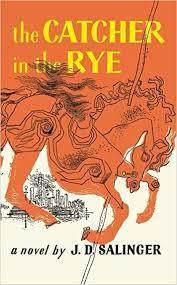
Thirdly, Holden settles the contradiction better in the stage of teenagers: Identity vs. Confusion than Esther does. According to “Erik Erikson’s stages of psychosocial development” by Mcleod, in different psychosocial stages of development, each stage unfolds on the completion of earlier stage, and challenges not completed may reappear as problems in one’s later life. For example, Holden says that “I mean if they're running and they don't look where they're going I have to come out from somewhere and catch them. That's all I'd do all day. I'd just be the catcher in the rye and all. I know it's crazy, but that's the only thing I'd really like to be” (Salinger). Holden, in the dark society, stills has the innocent dreams, which indicates individuality and identity. He is thus not quite confused about his future decision disoriented by conformity in the society. In contrast, Esther’s experience disorients her. All of her identity is centered on behaving well academically. she is unsure of how to make a life once leaving school. She cannot settle the contradiction to find her true identity, when her writing course is rejected, which subsequently leads to her confusion and then depression. Therefore, Holden settles the contradiction better in the stage of teenagers: identity vs. Confusion than Esther does.
In a nutshell, compared to Holden in Catcher in the Rye, Esther in the Bell Jar displays more serious psychological problems, with her depression more severe, more mentally affected by social norm, and less solving the contradiction in her Erikson’s stage for teenagers. As teenagers, we should pay more active attention to our mind. Living a wholesome life is not only developing yourself, but also fitting in the culture and finding acceptance in community.
Reference list:
1. Plath, S. (2019). The Bell Jar. Faber & Faber.
2. Salinger, J. D. (2019). The catcher in the rye. Little, Brown and Company.
3. Schimelpfening, N. (2021, January 13). 7 types of depression you may not know about. Verywell Mind. Retrieved June 14, 2022, from https:// www.verywellmind.com/common-types-of-depression1067313
4. Mcleod], [S. (1970, January 1). [Erik Erikson's stages of psychosocial development]. Erik Erikson | Psychosocial Stages | Simply Psychology. Retrieved June 14, 2022, from https:// www.simplypsychology.org/Erik-Erikson.html
 By Tianyi Shen
By Tianyi Shen
In today’s society on ever-moving wheels, the role of public transportation has risen to an unprecedented height, with related facilities expanding at increasingly speed around the globe. Despite of the wide praise it receives for convenience and considerable fi nancial pro fi t, public transportation does have various disadvantages, ranging from slightly uncomforting carriages to life-threatening risks. This article focuses on both sides of its characteristics and their impacts, summarizing various points of view about public transportation.
On the one hand, public transportation brings unlimited potential to the society. Firstly, by taking advantage of the financial and political support from the government, public transportation is able to control the price of its service, almost completely unaffected by the fluctuation and changes in the market of private transportations. As the government takes control of the price through offering subsidies to earn support in its voters, the public is expected to enjoy a relatively low service fee. This point can be better and further supported by the example of the subsidy policies of Nanjing, China. In 2015, the city decided to draw another 10 million yuan of financial support to the local bus operator. As for the nation’s capital city, Beijing, 15690 million yuan of subsidy was spent in 2021.
Secondly, the most obvious and important characteristic of public transportation being gathering a considerable number of passengers into one limited space, which is commonly a carriage, the utilization rate of resources will be exponentially multiplied compared to the rate of private transportation, thus saving valuable fuels for the sake of environment, for the pollution is at the same time dramatically reduced. Besides, larger single-ride capacity is directly and positively connected to higher transportation efficiency: the most fundamental characteristic of any form of transportation. To prove this most commonly mentioned advantage of public transportation, let us take an example of a public bus and a private car: according to the China Auto Regulation |GB 7258-2017 XG2-2021, the maximum capacity of a single bus is approximately 50 people, which is
about the capacity of 10 cars. As a result, the bus is able to save 20*10-70=130 liters of oil in a single day. Also, when it comes to the rate of transportation, as much as (10-1)/ 10*100%=90% of traffic is avoided, decreasing the risk of traffic congestion.
Apart from the environmentally-friendly benefits public transportation offers, the density of transported passengers, together with longer time and compulsory acceptance among them also leads to a higher efficiency in advertising various businesses and policies, which in turn saves millions of dollars spent on other forms of promotion. As a result, the companies become more likely to make bigger contribution to the national economy, as well as promoting growth and further healthy competition within its own industry. This point, often ignored, can be demonstrated thoroughly by the proportion that buses and metro occupy in total outdoor advertisements. In regards to the National Underground Media Report 2018, a total of 45% of all forms of outdoor advertisements appeared in buses and subway TVs throughout the year. The sum took the second place, only behind the quota of video advertisements.

On the other hand, however, there are equally undeniable disadvantages and risks hidden behind the many benefits of public transportation. Firstly, and most apparently, the enormous investment in building the necessary facilities and the lasting and evergrowing cost in managing the whole multisystem is not always easily refilled by the incomes from tickets, which is notoriously unreliable. Because of the increasing choices passengers face, many are reluctant to taking a ride in a crowded carriage, so the income is likely to shrink or vary. As the capitals behind the companies notice these fluctuations, large amounts of vital financial support will be at risk, bringing an increase on the average tax rate. Alternatively, the prices will be more expensive and lead to the same result--heavier burdens upon the people. To prove the point above, an example of Xigao Company is worth studying. During a meeting on May.6th,2019, the governmentmanaged bus company declared bankrupt due to mismanagement and most importantly, the lack of financial income from the residents of Gaoling District in Xi’an. Although new lines are designed and another governmentmanaged bus company Xi’an Gongjiao Company is designated to take the place, this trend is likely to continue widely.
Moreover, the configuration of different systems is often complicated and concentrating on the downtown area, and the construction is surly to disturb the busy routine, as well as the orderly traffic. Furthermore, when an imbalanced multisystem develops in favor of the urban area instead of the suburban, as is often the case, confusion about the complicated map,
overcrowded carriages and the consequent in-and-out-of-city inconvenience will bloom, stimulating various economic problems related to the imbalance between country and city. This point can be demonstrated thoroughly by the example of the metro system in Shanghai, one of the most complicated public transportations throughout China. According to the latest map, without lines in construction counted, there are currently 21 lines beneath the city’s busy roads. One will notice at first sight that more than a dozen lines, in great density, form connections in the central area of Shanghai circled by the purple Line 4, while outer parts of the city are poorly covered by only one or two lines. Considering the city’s still-increasing 15 million population, among which 5.18 million are senior citizens above 60, taking the underground does no good for the health or the convenience for the passengers stuck in “sardine cans”.
In contrast to the benefits of the previously mentioned high density of passengers, the risks of this very characteristic are indispensable. When a carriage is filled up with people, the safety of the entire crowd depends on the driver alone. Putting this priceless responsibility on one man’s shoulder is too risky for the credibility of the government and destined to have negative consequences. In such a situation, doubts will flood into the offices and policies makers will be limited to further support the development of public transportations and its benefits. This point can be better and further supported by the example of the “10.28 accident” in Wanzhou, Chongqing. On Oct.10th, 2018, a fight between a passenger and the driver directly lead to the bus falling from a bridge, killing all 15 aboard instantly.
Considering all the advantages and disadvantages, together with their reasons and examples discussed above, we can safely come to the conclusion that public transportation should be viewed as an extremely vital yet still potentially improvable system supporting the modern society. Only through further studies and improvements in the society in various fields can the problems be solved.
i. Anonymous. (n.d.). 南京实施公交优先发展 政府补 贴每年再增⼀亿
[Web page]. Retrieved from http://www.maxlaw.cn/plygjtls-cn/artview/833586422341
ii. Anonymous. (n.d.). [Web page]. Retrieved from https://m.huocheso.com/show_165613/
iii. Liangchao, G. (2019, May 8). 西⾼公交公司依法清 算破产,⾼陵区纳⼊到西安公共交通⼀体化的怀
抱 [Web page]. Retrieved from https://ishare.ifeng.com/ c/s/7mVtdS60xI7
iv. Peter, Z. (2017, November 25). ⼀辆公交车⼀天的 排放量 [Web page]. Retrieved from https://zhidao.baidu.com/question/524449942.html
v. CODC. (2019, March 6). 2018全国地铁⼴告媒体投 放分析报告 [Web page]. Retrieved from http:// www.qmtmedia.com/yejieshuju/29-1665.html
vi. Liangchao, G. (2019, May 8). 西⾼公交公司依法 清算破产,⾼陵区纳⼊到西安公共交通⼀体化的怀
抱 [Web page]. Retrieved from https://ishare.ifeng.com/ c/s/7mVtdS60xI7
vii. http://service.shmetro.com/skin/map/shmetromap.jpg
https://www.swguancha.com/home/city? promote=baidu06-PCPC08-1201a-2&type=6&renqun_youhua=3167784&bd _vid=8334845713303582497
Shanghai Statistics. (2020, May 5). 2019上海户籍 ⽼年⼈⼜数据分析 [Web page]. Retrieved from https://s.askci.com/news/hongguan/ 20200525/0931171160773.shtml
https://baike.baidu.com/item/10·28重庆公交坠江事
The dyeing industry in China is considered a most harmful polluter to the local aquatic environment. After recent actions are taken by the government, its connection to the term ‘Environmental Justice’ is increasingly apparent. While drawbacks of the current political and economic system in China appear more obvious in front of the requirements of environmental justice, the term’s application also provides the growing industry and its victims with an environmentally friendly future.
The textile and dyeing industrial sectors are vital to the world’s number one textile producer, China, whereas the national dyeing industry has long been admitted as one of the heaviest polluters in terms of wasted water. In 2010, Chinese companies printed and dyed 54.8 billion meters of fabric. Of that, over 50% was produced in Zhejiang province and about 33% of total national production was produced in Shaoxing County in north-eastern Zhejiang Province. However, wasted water that dyeing industry contributed to the national total amount ranked fifth within all manufacturing industries. Currently, the water required to dye every meter of fabric remains 3 times as much as needed in developed countries, while the reuse of polluted water stays as low as 7%, lower than the average reuse rate among industries in China.
It is not hard to infer where the water comes from: nearby rivers, where residents draw their water for daily use. Pollutants like sulphur, acetic acids, chromium compounds and heavy metals are frequently recorded in examinations even the water has flowed through the clarifying machines in the freshwater companies. 72 toxic chemicals in China’s water originate solely from dyeing, while 30 cannot be removed. The majority of the polluted areas suffer from functional loss of nearby rivers and lakes. For instance, Jian River in the city of Luoyang turned red from red dye that was dumped into the city's storm water pipe network in December 2011. In underdeveloped areas where most
factories are based, tens of thousands living by the water largely depend on its fishing functions. Thus, the pollution has unbearable consequences on their lives. For example, fishermen living near dye houses along the tributaries of the Qiantang River have seen their catches shrink dramatically.
The lack of environmental justice is apparent in the alarming situation of the dyeing industry in China. From the perspective of its definition, environmental justice involves the ‘fair treatment and meaningful involvement’ that people from different backgrounds enjoy. One of the important factors of ‘fair treatment’ is that no population bears negative environmental impacts resulting from industrial activities that they are not responsible for. In the case of dyeing industry in China, this definition seems unclear, because a considerable percentage of the residents that are harmed by the pollutants actually work in the factories or other factories in the textile industrial chain. Textile industry has extraordinary historical and economic impacts on residents nearby. From the traditional indigo-dyeing workshops to modern dyeing as one the first modernized industries in Asia, the lifestyle it created have built generations around the dyeing houses. Moreover, after the recent Reform and Opening-up in China, dyeing factories quickly rose in number across the country as they appealed to western businesses for their low cost, large
production scale and instant payback. As a result, dyers can hardly escape from the fixed mindset about their jobs handed down from fathers. The history of dyeing factories is a vivid example of successfully governing the commons, in which ‘rates of change in resources, resource-user populations, technology, and economic and social conditions are moderate’. In fact, the governance might be so successful that people replace the loss of healthy habitats with the pleasure of having a job in a factory that is directly polluting their drinking water. The main responsibility, however, should definitely be taken by factory owners, who have stayed away from the polluted water and enjoyed carefully decorated parts of firsttier cities where air pollution has decreased recently. The risks that factories pose on the environment are not always ignored by the workers, but working opportunities are strictly limited within the industrial chain. Thus, inevitable damage to the environment fall on only the poorer part of the people responsible, those who can hardly escape from or deal with the consequences in collective approaches.
On the other hand, what ‘meaningful involvement’ requires can precisely fit the situation but are luxuriously ideal, especially when this industrial pillar sustains local economics in a number of under-developed cities in Southern China. Accordingly, effective access to decision makers for all citizens and the
ability in all communities to make informed decisions are needed. Based on the highly bureaucratic system of local governance, peasants’ access to policy makers are full of obstacles. In most factories and nearby communities, people generally connect through the trade union or ‘communication centers’ separated in each neighborhood, both weak in influence in decision making. The so-called Chinese national trade union is state-controlled, greatly weakening the collective strength of workers. Strikes in China are legal, but related limitations and prerequisites are enough to prevent the leaders from forming any group more than 50 people. Due to the fierce competition and open space for new competitors in the dyeing market, no group of businesses or ownerships have a position in fl uential enough to alter the industry’s direction, leading it to a situation where ‘no issue can be uniformly solved by a single type of ownership or power’ apart from the government, creating its power monopoly that blocks most voices from rivers and lakes requesting urgent improvement in the environment. In Zhejiang, where main dyeing companies build their factories, local businesses are dependent on the support from the government in forms of industrial policies and loose supervision on pollution regulations, which means equal and open access to authorities remains an unrealistic concept for the victims who call out deeply for environmental justice.
To some extent, the concept of environmental justice is an excellent illustration of recent issues about the dyeing industry. To achieve environmental justice, respect to the growing and strengthening environmental laws, regulations, and policies is a necessary criterion. This offers a practical angle to witness that central and local policies, conducting the dyeing industry onto a more environmentally friendly path of development, have gradually grown in frequency, urgency and the extent of enforcement. After local governments’ reports, the central government clearly noticed the pollution and responded quickly in April, 2015, national resolutions planned to remove dyeing factories whose disposal of certain pollutants has not been licensed by the end of the year; throughout 2016, taking advantage of the thirteenth ‘Five-year Resolution’, stricter criteria asking for more environmental conservation and compensation measurements from the textile industries were introduced, followed by what is known as the most thorough inspection in the industry’s history. These actions seem faster and more direct than usual landings of policies and are typical strengthening of governance that environmental justice calls for. After the industry’s reformation in the recent decade, effects have appeared immediately. When smaller factories face their shutdown, the market has to abandon lower costs on cheaper and dirtier techniques and turn to larger companies, whose facilities are officially licensed, e
xamined and closely supervised by special environmental protection departments that were set up based on former local NGOs. The majority of employees from closed factories were squeezed out of the town, which actually decreased the number of victims. In case that they are stuck in poverty, the widelyknown Poverty Elimination program will offer to transfer them to apartments in the nearby town and ensure clean surroundings, realizing the requirements of environmental justice.
criteria are altered or policies are changed in order to support the local economy, however, factories that are already struggling with deficits will immediately be rebuilt using cheapest machines without proper authorized disposal techniques. All the efforts made will face the risk of becoming nothing, so will the partly realized environmental justice.
Yifeng, Z. (n.d.). Sustainable production in the printing and dyeing sector in China [Web page]. Retrieved from https://www.switch-asia.eu/project/ sustainable-production-in-the-printing-and-dyeing-sector-in-china/ #:~:text=Printing%20and%20dyeing%20%28P%26D%29%20is%20a%20key% 20process,produced%20in%20Shaoxing%20County%20in%20northeastern%20Zhejiang%20Province
Shaona, Z. (2021, October 11). Industrial adjustment accelerates industrial restructuring---Fuchun dyeing and weaving takes advantage of the trend [Web page]. Retrieved from https://www.toutiao.com/article/7017650789925683725/? app=news_article×tamp=1657958312&use_new_style=1&req_id=20220716155 8320101501702150E48756D&group_id=7017650789925683725&tt_from=wei xin&utm_source=weixin&utm_medium=toutiao_ios&utm_campaign=client_sha re&wxshare_count=1&source=m_redirect&wid=1658027409104
CWR. (2011, April 18). The Environmental Cost of Clothes [Wed page].
Retrieved from https://www.chinawaterrisk.org/resources/analysis-reviews/theenvironmental-cost-of-clothes/ #:~:text=In%20China%2C%20according%20to%20the%20World%20Bank%20 17,textile%20dyeing.

Despite these early impacts the policies have had, the general goal of the reformation is to turn the industry into a favorable option for investment that foreign capitals---which largely depends on a market requiring cleaner and greener producing processes and environments of producing---would be interested in, instead of nurturing people’s respect to the environment and further promoting environmental justice for people under potential threats. Compared to an industry’s growth, a society’s respect to the environment is more difficult to construct. Once the
%20Of%20these%2C%2030%20cannot%20be%20removed
Helen, R. (2020, September 29). Asian rivers are turning black---and our colorful closets are to blame [Web page]. Retrieved from https://edition.cnn.com/ style/article/dyeing-pollution-fashion-intl-hnk-dst-sept/index.html
United States Environmental Protection Agency. (2022, March 22). Environmental justice [Web page]. Retrieved from https://www.epa.gov/ environmentaljustice
Thomas, D & Elinor, O & Paul, S. (2003, December 12). The struggle to govern the commons [Web page]. Retrieved from http://www.eebweb.arizona.edu/ courses/ecol206/dietz_et_al._2003_the_struggle_to_govern_the_commons.pdf Karen, Z. (n.d.). Labor unions in US and China [Web page]. Retrieved from https://coalhillreview.com/labor-unions-in-u-s-and-china/
#:~:text=But%20independent%20labor%20unions%20are%20almost%20nonexistent%20in,an%20important%20role%20in%20protecting%20employees’%2 0labor%20rights
Sina Finance. (2020, September 1). The storm of environmental protection and the ongoing of capacity improvement of the dyeing and weaving industry [Wed page]. Retrieved from https://finance.sina.cn/futuremarket/qsyw/2020-09-01/ detail-iivhvpwy4211380.d.html? tt_from=weixin&utm_source=weixin&utm_medium=toutiao_ios&utm_campaig n=client_share&wxshare_count=1
In many people’s mind, the Roman tax system was quite immature and lack a stable standard all the time, despite their honor of one of the first civilizations to give birth to regular taxation. This perspective can be confirmed by the chaotic additional taxation and exemption. In state of war, the government would abruptly levy extra taxation from the wealthy individuals-- even in the form of “national debt” in certain situations. Besides, the standard of exemption( except for the ones caused by disasters) had more to do with race than other seemingly more reasonable reasons such as regional wealth conditions. There had long exist an obsession of hierarchy between the Roman citizens and the gentiles, reflected in the sphere of Roman citizenship as well as their tax exemption system. For instance, Claudius forgave the Troas forever for their “tribute”, giving to reason “The Troas were the founders of the Roman race” and that “Nero also exempted or reduced relatively onerous taxes”. Such randomness in tax collection caused the gap between rich and poor to widen and the government power to weaken. And this article aims to explore whether this immature tax system of Rome did follow the development of commerce during the public and the empire.
Considering the evolution of tax form alone, we can conclude that the Roman taxation was at least partly in accordance with its commercial development. In the early Roman Republic, both agriculture and handcraft industry were in their initial stage, so tax-in-kind like livestock was in dominant. In 579 B.C., Rome started to main coins, greatly stimulate the commodity economy. As a result, the form to pay the tax turned into a kind of medal block, some with the pattern of sheep on them. And after 200 B.C., the currency taxes gradually dominated, which made the monetary forces more active. When taxes were required to be paid in currency, the landlords were forced to sell their food and handmade product, and that boosted the circulation of goods in the market. In addition, the city of Rome needed to trade with its surrounding cities in order to make use of the property derived from taxation, which allowed those cities to export equivalent goods to counteract them. Even maritime trade got involved in, as Mediterranean foods and luxuries were popular among the Roman people, proved by enormous ships with high tonnage.
In the Late Roman Empire, however, the tax in kind rebounded again. Regardless of the negative effect it had on the amount of money in currency, we have to take in consider the horrible situation for commodity economy at that time-- the deadly inflation and perhaps heavy tribute imposed on the merchants-- as will be mentioned later in this article. So this variation that seemed to go backward can actually be seen as a rescue of the commodity economy. The whole empire fell with the demise of the merchant class, partly because the authority lost a substantial source of income and had no power to stabilize the completely disordered market.

While the tax form supports that the Roman taxation was consistent with its commerce, the development of tax structure seems to overturn this statement. The most basic taxes are poll tax and land tax, which was later exempted in the city of Rome but still levied in other regions. At the same time, public taxes such as the tax of the harbor, the tax on selling products and the inheritance tax were designed for merchants and property owners. Such tax structure indeed draws a harmonious picture of embryonic commodity economy and the corresponding administrative tax system. The war and the financial situation of the Roman government, however, played a more important role in tax system formulation, while the commodity economy had little impact on it.
The Rome’s neglect of commerce can be explained by three reasons. Firstly, the instability of Rome’s commodity economy itself. In fact, during the republic and the empire, the commodity economy was not the result of the development of agriculture and handcraft and urban prosperity, but was instead brought by large-scale foreign wars. As mentioned above, the agricultural and handcraft skills in Rome were not advanced enough to support the prodigious trade. The main trade content were booties and slaves, which could be provided only by continuous expansion and war victories. For instance, the rapid growth of the usurious capital was largely artificial and seemed to be abrupt for local economy, stimulated by numerous reparations, war booties and tributes surged into Rome. Therefore if the war ended, or the Roman army was defeated, the goods and capital would immediately shrink, and the commodity economy would quickly fell accordingly. There raises the problem: in the case of victory, the Roman government could make a lot of money to continuously support their army, and let the commodity economy flourish naturally; in defeated situation, on the other hand, the government would increase taxes on businessmen to balance the losses of war, even impairing the weak merchandise trade at that time. Sometimes the authority would force the property owners to be equestrian tax-collectors(mentioned later in the article)-- they let them to prepay the taxes and ask them to make up the loss from peasants with little money. Viewing the fluid policy towards trade, we can conclude that the Roman tax structure was in accordance with its war stage rather tan with commodity economy.
Secondly, the traditional thoughts that stressed the agriculture and damped business. During both the republic and empire era, merchants were thought to be despicable since people believed that they didn’t work but deceived to profit from others. Such idea also affected the government’s policy-- the Roman aristocracy were banned from engaging in business, so the role of merchants were taken by gentiles and slaves, an inferior group in Romans’ eye. Besides, as the Roman aristocracies owned a great amount of land and wealth, they tried to collect property in a clever way: they hired a smart slave or a free man to run business for them. In this way the aristocracies were the actual owners of the wealth, not the merchants. In order to pursue there greatest interest, the aristocracies took advantage of their vast property to sell grains at high price during the famine, which seriously disrupted the market and thus made the conditions of businessmen even worse. Therefore at a disadvantage position both politically and economically, the so-called merchant class could hardly gain enough power to influence the tax policy.
Although the ancient Chinese shared the same thoughts towards business, the commodity economy was in different situation. Unlike the unstable commerce in Rome, the commodity economy in ancient China was supported by the elevating level of agriculture and handicraft industry. At least during the middle ages, China was a leader at ceramics and textile industry,
whose product could serve as important goods in trades. So the merchants did not depend on war booties to run a business, which meant that the government can acquire a stable income by adjusting the tax structure to meet their development demand. The most famous example should be the “One lash Method” reform of taxation in Ming Dynasty. With the extremely simplified tax project and requirement to pay them in silver, the commodity economy quickly boosted as great amount of silver entered the market and large number of peasant unbound form the land to serve as labour force for manufacture. In addition, the authority itself benefited form the increasing taxes and was pleasure to serve as the facilitator of commodity economy. We should also admit that the external factor contributed a lot to such transition: the opening of new sea-routes accumulated wealth to the European countries who then transported large amount of silver to China by international trades. On the other hand, the merchants in ancient Chinese were always finding ways to change their identity. They spent loads of time and money educating their offspring and buying official position to blend into the social order. Actually they were doing a great job in terms of rising political status-for example, during many Dynasty the salt merchants enjoyed high social status, not only reaching lofty position in imperial service, but also gaining close ties to the royal family because of economic interests. Unfortunately, the merchants in ancient Rome continuously suffer from low social status and isolation, perhaps not having enough time to complete the transition in identity.
Finally, the inconvenience of taxing merchants. Considering the mobility of merchants and the difficulty to calculate their actual earnings, every civilization once faced complex problems to formulate policy to tax them, which made it much harder for government to receive stable income from commerce than from the basic agriculture. In the late empire, the taxes derived from merchants were only one-twentieth of agricultural taxes. This definitely aggravated the grudge from both the average citizen and the Roman government against the merchants, intensifying the social contradictions negative for businessmen. It was not rare, actually, for the Roman to cut taxes in order to avoid trouble: in collecting the inheritance taxes, the small ones were exempted form the tax system according to the high cost of collecting them. Therefore the commercial factors were initially unnoticeable in Roman tax structure.
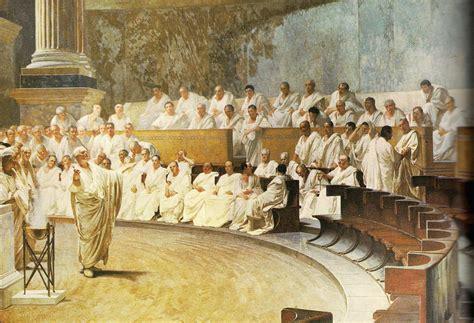
The Roman taxation was famous for its collecting system of tax farming, with people bidding for the right to collect tax in a certain region. Hearing its content, we might think that it was a kind of commercial behavior about tax and would accordingly promote the commodity economy to flourish, but actually it was the reflection of the weakness of the government-- since they had not enough officials to collect direct taxes themselves-- and the essential purpose to adapt the war. The tax collector as well as the collection companies were regarded as “robbers” considering their rude collecting process and frequent additional levy to pursue the biggest profit(there were sayings that Roman people thought of tax collectors as the symbol of devil), which further tarnished the image of merchants. During particular time, especially in the late empire, such tax collection form served as tool for the government to exploit the property owners in order to protect their own income. They used this way to shift the financial crisis onto people with property and impoverish the whole merchant class, which gradually drove them to distinction. Besides, the tax farming form showed great adaptability to the continuous expansion of the Empire. Hiring people to collect taxes turned to be a perfect solution to the problem of lacking a large bureaucracy to manage regions far away from the city of Rome and provided stable profit for the authority. In conclusion, despite its appearance of commercialization in tax collecting field, the tax farming policy was actually the result of expansion war rather than the development of commodity economy.
Many reforms in the Roman Empire seemed to bring disasters to the merchant classes at that time. The Emperor Hadrian directly connected the consumers with the producers and suppressed independent merchants in prevent of competing form breaking the economic balance of Rome; Alexander Severus took commerce and handicraft industry under control, greatly demolishing their vitality; Diocletian’s tax reform, similarly, registered every person’s occupation as well as the accurate land scale of peasant, and stipulated their payment and tax collecting standard.
Some scholars criticized Diocletian’s tax reform since it bounded the peasants on their land and rigidified the commercial activities. However, in my mind, this reform was actually rescuing the decaying commodity economy according to its particular background. As the economy of Roman Empire began to collapse, in order to collect enough taxes for military use and the government’s current expenses, the Roman government started to reduce the percent of silver in coinage or reduce its weight, exposing the whole empire under the threat of mass inflation. The commercial economy could hardly run by itself at that time, so the innovation in coinage system and the renaissance of tax in kind served a positive factor to maintain such vulnerable economic form.
In comparison with tax reforms in ancient China, which have been proved to stimulate the commodity economy, Diocletian’s reform appeared to be different. Firstly, the Chinese tax reforms, from the rent modulation to the Zu-Yong-Diao system then to the Two-Tax system, the standard of collecting tax shifted gradually from the number of people to their real capital, releasing the peasants from the conception of “household” and thus promoting the mobility of population. In contrast, the Diocletian’s reform bound peasants to their land by accurately measuring the land scale and widely introduced the poll tax. Secondly, the evolution of Chinese tax system showed a firm path towards revenue monetization, while the Diocletian’s reform partly encouraged the tax in kind. But if we take the two distinctively different conditions for commodity economy in consideration, we cannot ignore the contribution of Diocletian’s innovation of tax to preventing commerce from complete extinction.
Reference:
Seligman, E.(1894), Progressive Taxation in theory and practice
[Accessed 17 Feb 2022]
Hopkins, K.( ), Rome, Taxes, Rents and Trades
[Accessed 17 Feb 2022]
Günther, S.(2016), Taxation in the Greco-Roman World: The Roman Principate, OXFORD HANDBOOKS ONLINE[online]
Available at: https://www.oxfordhandbooks.com/view/10.1093/ oxfordhb/9780199935390.001.0001/ oxfordhb-9780199935390-e-38
[Accessed 15 Feb 2022]
In conclusion, it is a complicated issue to analyse the adaptation of ancient Rome’s taxation to its commodity economy, for it is not a question with a definite answer. Detailed information of transforming reforms and the corresponding economic stare needed be supplemented to this article.
Lixing, Z.(2001), Commercial characteristics of Ancient Rome and the formation of medieval self-sufficiency, Fudan Journal (Social Science Edition)
[Accessed 18 Feb 2022]
Guodong, X.(2010), Package tax person of Rome-- official duty contract system, two close company is in ancient Rome, Jilin University Journal Social Science
[Accessed 1 Mar 2022]
Sanyi, W.(2007), Roman tax system and Diocletian tax reform, World History
[Accessed 1 Mar 2022]
On June 24, 2022 local time, the U.S. Supreme Court overturned the ruling in the “Roe v. Wade case”. The ruling of the Supreme Court will give states the power to enact abortion laws. It is expected that almost half of the States will declare abortion illegal or strictly restrict abortion.

This is a recent shocking news, which greatly arouses the protest of people all around the world. Obviously, in this case, the United State has completely ignored women’s freedom and authorities, flagrantly abolished women’s right to make decisions on their own bodies. As a member of women, I was greatly provoked to think about unequal treatment women have to face and unequal responsibilities that women have to shoulder in sexual relations. For profound investigations, I made some interviews.
“I have asked him to wear condoms, but he just refused to do so! He feels that contraceptive measures are only for women, and he is psychologically repelled by wearing condoms since he felt that he was separated by a barrier, which makes him feel very uncomfortable. His mind is full of male chauvinism. He thinks that a man may not be a man any more if he is sterilized, and he also believes that sterilization affects his sexual function.” These are sayings from a woman who has suffered a lot taking several times of abortion operation. Seeing from this interview, it is obvious that the main reason that may cause an accidental pregnancy is men’s rejection to take responsibility for contraception. In some way, our interviewee’s several times of abortion can be recognized as her husband’s fault, but this still cannot change the fact that it is the woman that have suffered the pain and damage of both physical and psychological. This has already been unfair, but if abortion was made illegal, things could be worse. She would have to give birth to babies compulsorily, and then struggle to raise them up. All these miseries and such a pathetic future would just be the cost of a man’s fault.
Though the gender inequality in sex is inevitable for the fact that there are differences between a man’s and a woman’s body structure, but the inequality can be released by adequate sex education. To further understand the situation, I interviewed a doctor.
“September 26th is the Contraception Day, an international day of remembrance. Its goal is to create a world of ‘enjoying sexual welfare and safe contraception’. Contraception is the common responsibility of both parties in love, which should be shared by men and women. If you have decided to start a stable relationship, contraception is the first thing to consider. Studies show that currently, Chinese married couples choose various short-term or long-term contraceptive methods, according to their physical conditions, including ligation, intrauterine devices, contraceptives, condoms, etc. In the choice of birth control methods, IUD is more than 50%, which is the most important method of birth control adopted by married couples

in China. Correspondingly, male sterilization accounted for only 3.3% of the total number. Excluding condoms and others, the contraceptive methods that women bear the main risks and consume time, energy and money account for 78.1%. Therefore, learning scientific contraceptive methods and actively choosing their own contraceptive methods can keep away from accidental pregnancy and injury, and this is also the most solemn promise in love.”
After fully considering the case of criminalizing abortion and doing some research about the inequality in sex, I finally come to the conclusion that not only the government should shoulder their responsibilities to safeguard women’s reproductive rights, we women should also love ourselves and fight for equality by building healthy and safe sex relations.
Where the universe found its origin
The masses were coaxed to swallow it down Bitter cups of theories waxed by sweetness
In as far as you could cast your hearing
A new reverence echoed in the dark
You sorrowed, you trembled. Stunned by Grand scenes of imagination Your soul soared, then down to reason
A refute claimed, in a sudden—— Your eyes widened to excitement Great plan pressed your expiration
In firmness you smashed up the lens To rewrite orders of the empire
You arranged for disasters and survivals Kept track of vagrancy as well as missions You weaved the golden days into an anthem Then chanted in tune of a lamentation
As to those tempting, deadly illusions, You suppressed them underground, in a dream
You lighted a flame inside enteral minds Men and Gods for first time came to equality The fire grew and spread from breasts to breasts, Burning down the city of stars and liberty, Burning down the person with only truth to believe Down came the all-abled father to sell his redemption In crying he drew the water flow Form the coercion of the heaven
The story unfinished, But you got exhausted You sailed off to a holy sea, Let the wind blow up the sheet, Along the well-straight channel, under the tranquil moon
—An illustration of Daisy in the 2013 film The Great Gatsby By Tianyi Shen, 2022/4/30

I have always been in love with the story of the Great Gatsby, especially after sharing similar experiences. I suppose Daisy to be his goddess of light---the kind of ‘moonshine’ that men seek desperately due to either love or just illusions throughout their lives--filling his dreams and illuminating his future. Gatsby, in turn, worships his goddess in every possible way. But not until Gatsby eventually captures her shallow phantom in sight does he realize the harshness of truth. I want to freeze the moment when they two collide. In the closest distance of two minds, differing in directions yet clinging to yesterday, the fading light in Daisy’s eyes are shining with excitement. So are Gatsby’s, I guess. But we will never know, never until vanity are gone from our hollow hearts.
The texture of fluid is perfect to capture thoughts about the earth, as our world is in an ever-changing state. Life, represented by white sperms of purity, comes from the blue water and charges into the firing future. As for the round shape of the whole painting, circle is the best visualization of life itself---repeating, rebounding and reaching nirvana in a vigorous peace, with all the blocks of color dancing to their own beat. This is the way.
‘So we beat

This picture is shoot through a microscope. it can show people the beautiful micro world.

This picture is about a construction site. this may inform us that there's beauty at every corner of our lives if we can discover them.




Lots of clothes
2021.10.17
every morning struggling to school, I see these hanging clothes through railings of the bicycle shed.
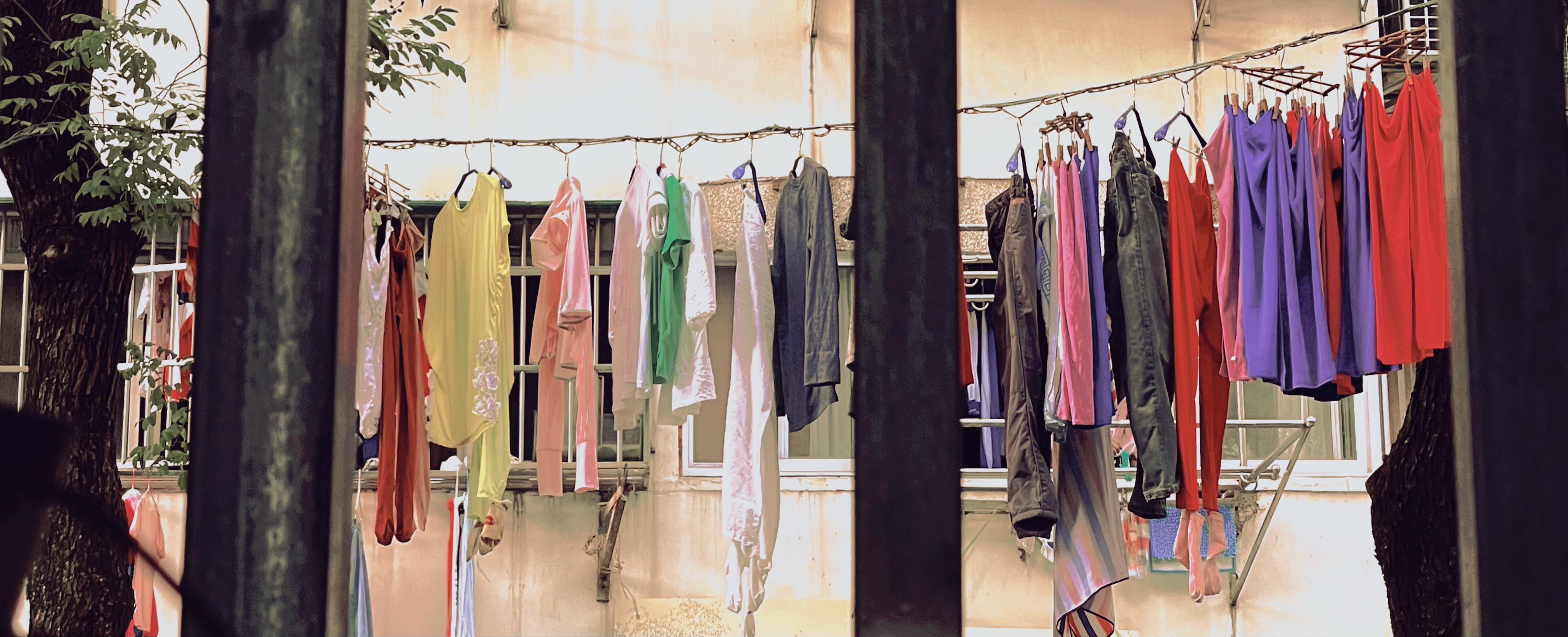
Verano in November

2021.11.13
some unknown red flower shot on a very hot day in November. llévame al verano~
The Ruins of Saint Paul’s in the distance on a rainy night (Macau)
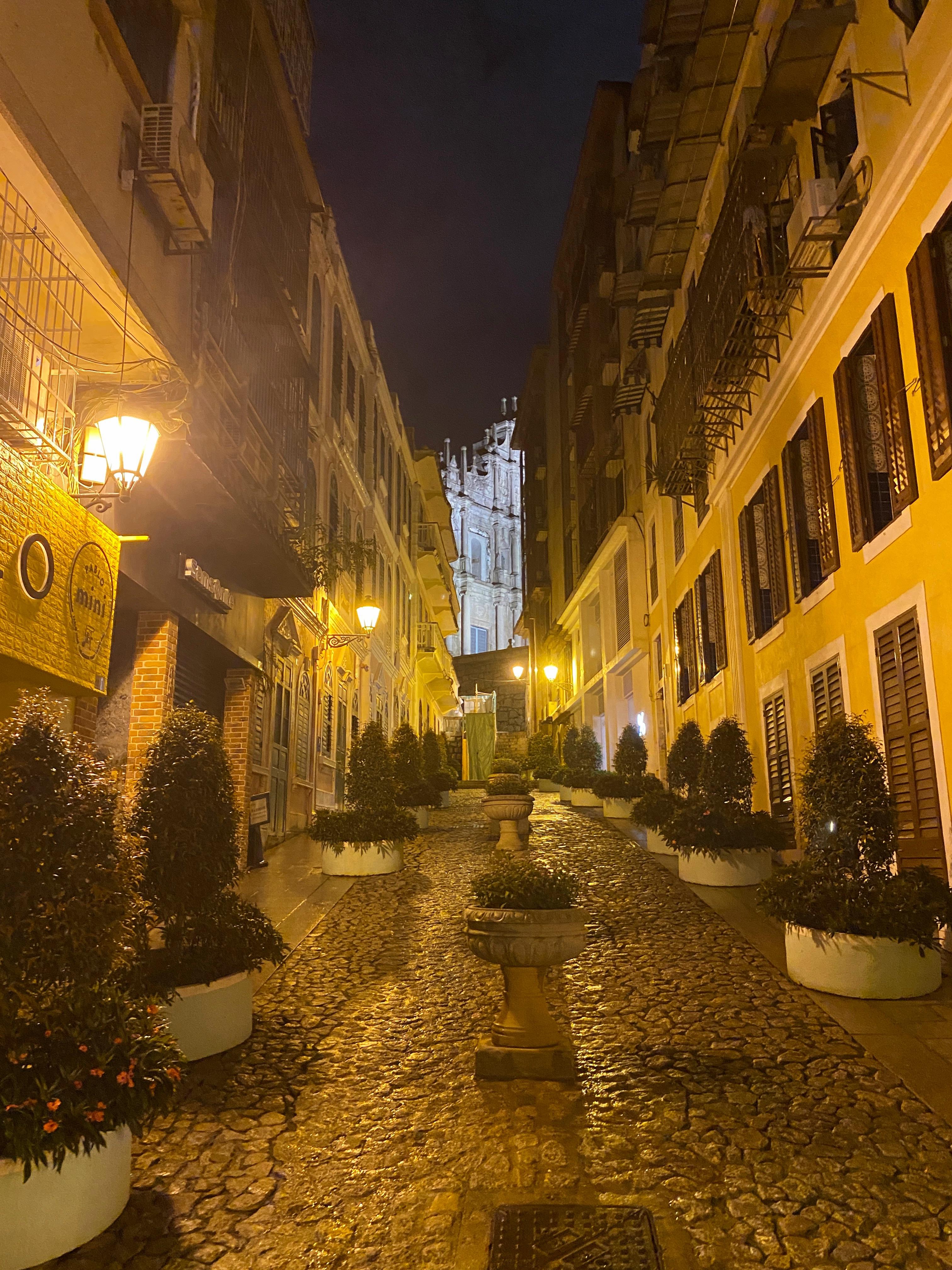
Imperial Palaces of the Ming and Qing Dynasties in Beijing

the Temple of Heaven: an Imperial Sacrificial Altar in Beijing

The Nanjing eye taken during the sunset. The twocircled bridge arranged in the middle with sun light coming from the back.

Ancient Chinese styled architecture in the sun light. Lanterns with red light glooming on the roof and bright colored clouds in the background.

The buildings of the Nanjing Poly Theater with blue sky as background.

Grass of reed by the river bank at the time when the sun is going down.

Taken in the evening, the starshaped lights hang in the gallery of 1912.

The basketball field in XianLin district after the rain with the wet ground reflecting the color of the sky

The stone animal sculptures in Xiaolingwei in Nanjing. Sunlight going across the tree leaves, showing different colors.

A half-light, half-shadow ancient Chinese styled architecture under clearblue sky.
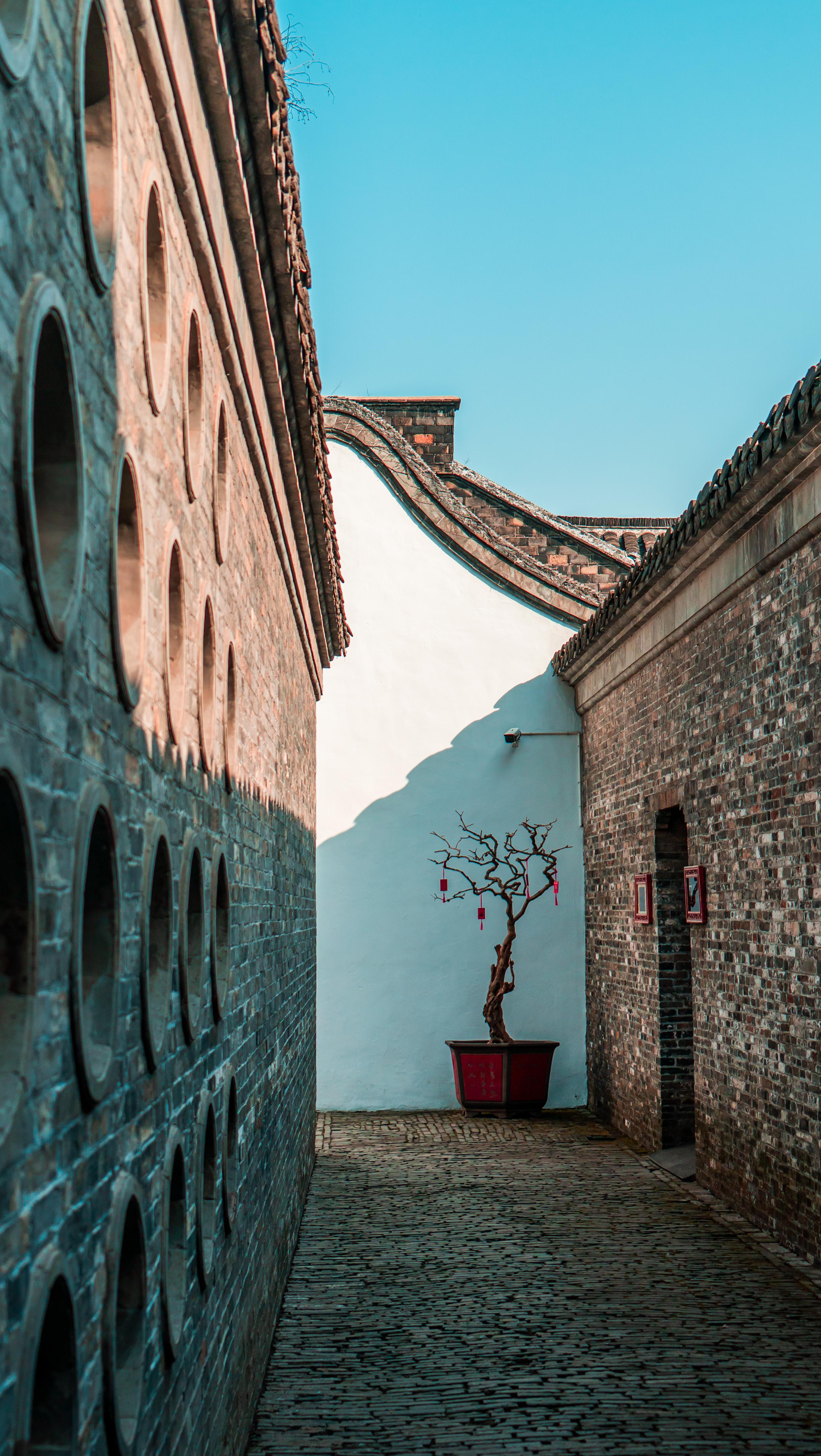
Sudden catch of a bird resting on a branch of the maple tree in Qixia mountain.

The blue sky and beautiful sunlight matches perfectly. Despite the tiring studying at school, it’s such a wonderful thing to see a seemingly ordinary scene and gain the strength from it.
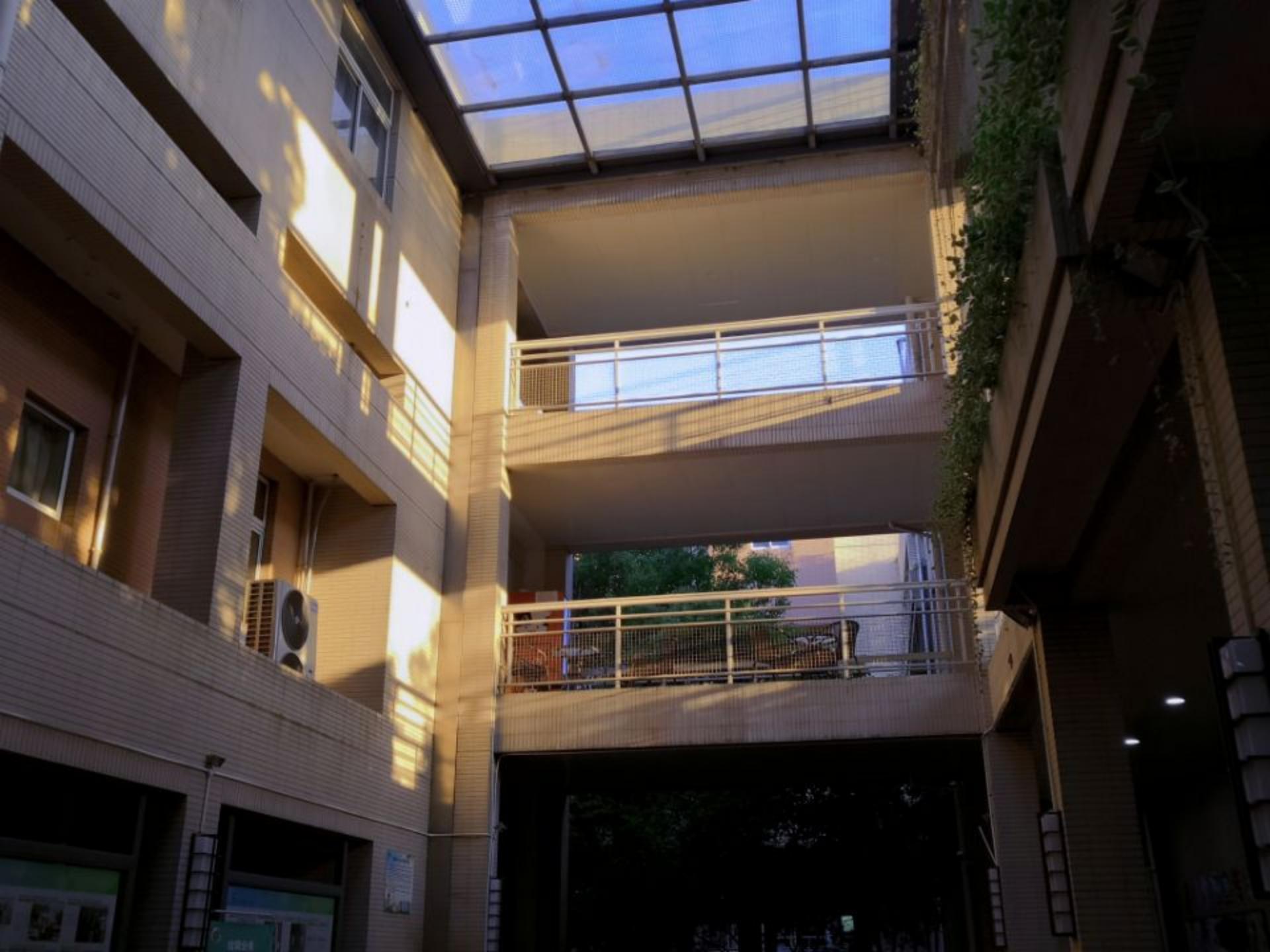
A magnolia flower.

The night of the spring, some of the flower dropped from their branches. With the soft light fell on them, it seemed like being in golden slumber.

The spring time. Though the ginkgo leaves turned to the green color, when the sunlight touched them, they reflected into “different” green. What’s more, the branches and leaves happened to form a circle, in its centre, two girls occasionally past through the hallway. In the background, the stadium could be seen. All the scene composed together perfectly which showed us a halcyon afternoon picture.


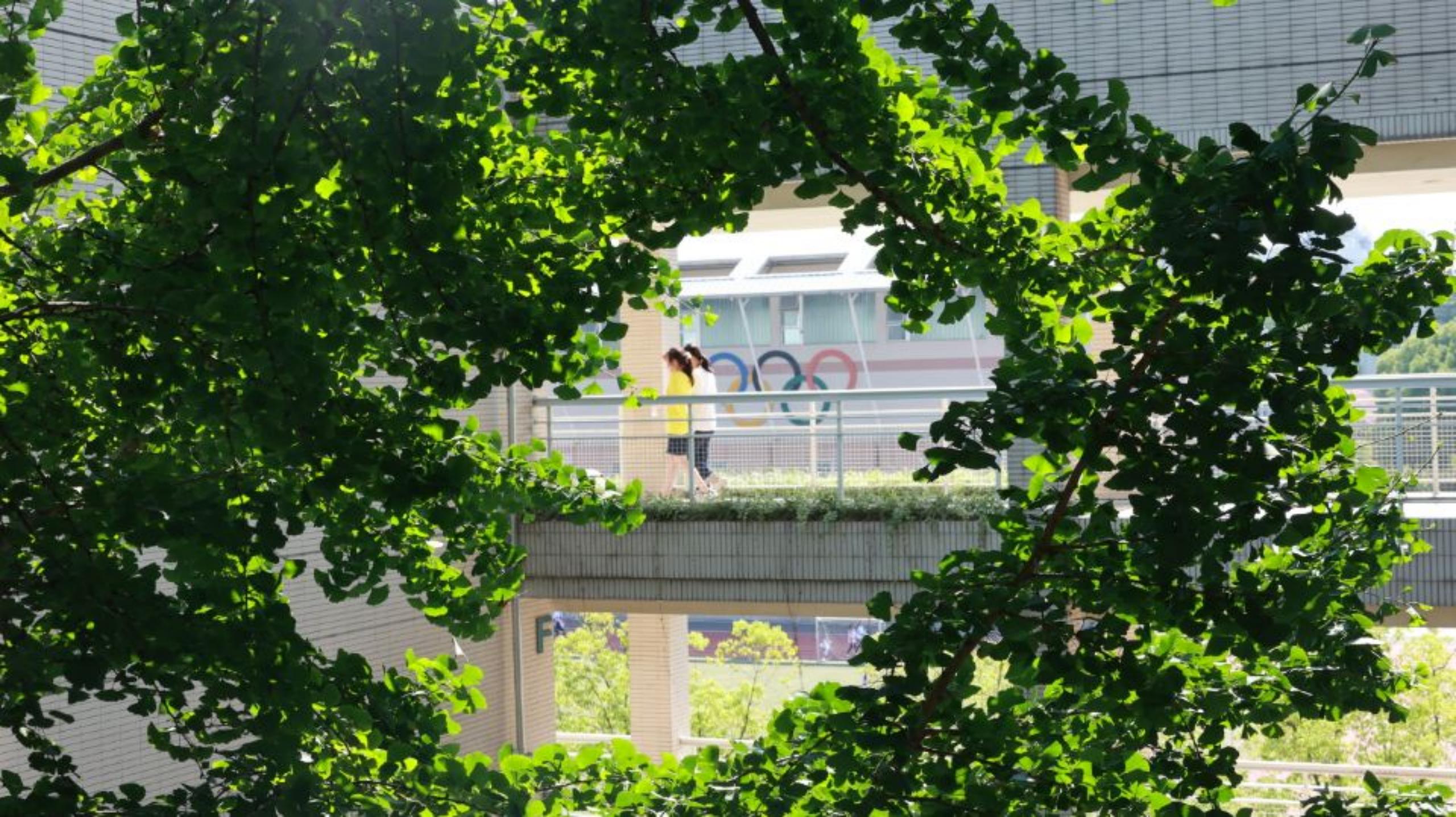




01
The first time I met him was just two weeks after the start of the first term of my third year of junior high school.
The homeroom teacher walked in with two boys and told us that these two students would be part of our class and asked us to get along well. Taking the time to glance up from my competition paper I was instantly drawn to one of them. He hadn't received his uniform yet. His own jacket slider hung painfully in the middle of the zip of the clothes with his bag over one shoulder and his hands in his pockets decadently.
‘Not a good student at first glance.’ I thought.
Introducing himself in accordance with international custom, his introduction was as straightforward as the message his appearance conveyed, with just a word: Kevin.

Then, the two desks behind me had their own owners. He was like all the other villain students, sleeping in class, surfing the internet after class, occasionally going out for brawls, and heading to the office for a reprimand or a briefing with his face tarnished. Our head teacher had a very strange rule that the position of the class monitor was usually held by the most naughty and undisciplined student in the class. So Kevin naturally emerged from the office for the third time with the title of the class leader. But what I didn't expect was that the head teacher specifically came to me and said that he wanted to put us together and hoped that I, as a member of the class councilor, could lead him in his studies. I didn't dare to go against my teacher's orders, let alone the fact that it was my homeroom teacher. I briefly thought about it and nodded my head in response to the errand.
I really didn't want to 'fit in' with these types of people, and with the fact that I had a heavier academic load than the others, there was a gap between our seats where there was almost enough room for one more person. This was the "38th parallel" we both had agreed on when we first sat together. I couldn't keep my distance from him socially, but only physically.
Sitting next to me didn't change any of Kevin’s habits. I was of no use to him. In the two weeks we sat together at the same table, we basically didn't talk to each other. Only the bruises on his face became noticeably less than before.

Soon it was time for the fortnightly change in our class and we both moved to the window seats in the inside of the classroom. While I was still slowly tidying up the papers at my table, he was already carrying the table and moving the chairs to where we would be sitting. I was still slowly packing up my things, thinking that he would sit down and continue to sleep, but he came over and lifted my desk smoothly carrying my bag and put it next to his desk. Stunned for a moment before I lifted the chair which is the only remaining to move and placing it next to my desk.
He put my table and his table neatly together. Since he had helped me move my seat, there was no reason for me to move my table away. The "38th parallel" disappeared without a sound, and the distance between Kevin and me also left along with the "38th parallel”.
He always asked:“How is it works? Teach me.” “what is the next class?” “where are we now?”
I always answered:“Aren’t you listening” “Can you move a little? Your arm has been in my way.” “Remember the homework, monitor!”
Our school sports day also crept up on us as we became more familiar with each other.
This afternoon was the volleyball tournament. Not yet learned the joys of volleyball, so of course, I didn't participate this time. Before I went downstairs to the court, Kevin said to me while looking for a towel, "Come and bring me water later, and if we win, we will go to celebrate.”

I stood up and congratulated him. He nodded and smiled at me, then gave me the medal, took the water bottle from my hand quite naturally, finally opened it and started drinking.
I nodded my head. He wasn't asking me, he was telling me to do so.
How would I take it seriously? He was so handsome, and there were plenty of girls offering water to him, he wouldn't be needing mine. So I spent the afternoon sitting on a bench outside the crowd with my own water quietly swiping my phone and taking a sip or two every now and then. When hearing the whistle, I pulled myself away from my phone and looked at the girls rushing up to send water with a smile on my face. Then I saw Kevin walking towards me, holding a shiny round object in his hand.
Ha! They've won! We can go out for dinner tonight!
He looked over at me as he drank the water, asking me wordlessly what was wrong, wasn't the water for him. I took a long breathe and waved at him, "Nothing, just go on.”
The cheering and celebrating over at the volleyball court had changed somehow. Shrill, piercing sounds pierced my ears. I cocked my head to see that our class seemed to have gotten into a quarrel with another class.
I winked at Kevin and said I'd go over and check it out, then squeezed through the crowd.
After briefly learning what had happened, I went up to argue with the other side. The fact that they were all tall and big people who had been playing tennis for years made me intimidated. Yet, as a "weak scholar", I couldn't lose this debate.
Soon, they found it hard to outarguing me, so they began cursing some nasty things with their fingers pointing at my nose, having the potential to fight.I don't know if the noise was a bit too annoying, Kevin, who was sitting on the side resting, frowned and pushed his way through the crowd and stood next to me, slapping off the hand pointing at my nose and asked in a calm manner, " How can you be so noisy?”
“Hey! That’s……”
I turned my head towards him. He looked expressionlessly towards the other class instead of me the whole time, but it was as if I had a sudden burst of energy and all my anger and fear had vanished in a flash.
I saw them mutter a couple of words in a whisper, stared maliciously at our class, and walked away. I looked at him for a moment and he looked at me, then silently withdrew his gaze in advance.
" Why did you come over this afternoon?" I asked on the way to dinner in the evening when I suddenly recalled this, "Aren't you taking a break? I am not saying I can't outargue them, and it's not likely I can't beat them if we really have to.”
"You really don't think it's a waste of time? Besides, it's no difference if I rest for this while or not especially——" Kevin swallowed the words that were on his lips, and after a pause, he patted me, "Fine, nothing. Let's go."
I was reminded of this quote when I opened my computer: "Never meet someone too amazing as a young girl." Because most likely that all you will meet in the future will be like him. He took away my whole youth with a simple turn. You can't say what was good about him, but just can't be replaced by anyone.


When I pushed the door open, a bright smile on my daughter’s face bumped into my sight. Instead of offering her a warm embrace, I dropped down my briefcase subconsciously in a flash.
Is she literally my daughter? I wondered inwardly.
I meticulously scanned her face again and again. She was in a clean T-shirt. She had the pupil and hair of identical color compared to my daughter’s; she had the scar on her mouth which Annie got while scuffling with her classmates; she even had the small dark birthmark under Annie’s canthus as well.
That’s my daughter. I heaved a small sigh of relief.
But here’s new problem: how came she smiled to me?
With this question reverberating in my mind, I kept silent as usual. The house was filled with awkward stillness. Unlike my expressionless face that was still in the air, a multitude of thoughts had been made inside: Annie hadn’t been so happy at least in front of me for months. Perhaps she had really a good day at school. Maybe she was reconciled with some of her classmates...
I forced myself to stop looking at this smiling face. It seemed so unreal and intact, but still attractive. An ambivalent attitude crammed into my heart. To be honest, as long as I stared at this innocent cheek, I started to feel guilty about myself.
I knew I was an incompetent mother. Of course I was.
Her father and I got divorced. I hadn’t gained the custody of her until her father passed away. After that, I always had troubles communicating with her. I could have thousands of heated debates with my colleagues and act calmly to explain myself when getting inveighed by my boss, but when it came to my daughter, I didn’t know how to confront her alone. So I kept silent as usual.
Under normal circumstances, Annie would stay reticent likewise, then returned to her bedroom to finish her own business, as a wounded bird went back to her nest quietly. That’s what I was familiar with though felt pained to. But the joyful robin suddenly flew out of the cage today, replacing that previously silent bird. She chirped cheerfully to me about what happened in school.
We stood in front of each other with little distance. I got lost in her voice which gradually floated away to the sky, as I started to immerse in a trance. I had never experienced a scene like this. It was so far away, like if I blink too hard, all this would fade away.
I burst into happiness without sense of reality. One tiny change stepped forward by either one of us, could avoid numerous fights and quarrels in the future. But no one dared to take the step. Now my daughter had the guts to communicate with me, and we finally had the embryonic form of a normal cozy family.
Maybe I should move forward as well. I bend my body slightly forward, tentatively patting her shoulder. While I was filled with anxiety as well as contentment, a sort of peculiar feeling slowly grew from my rational part. I couldn’t tell, but my instinct told me something was definitely wrong. I subconsciously looked up at the mirror: a sedate mother bend over to touch her daughter. Despite the mother’s rigid motion, everything was that ordinary, I attempted to convince myself.
A striking thought struck me like lightning: Why I needed to bend over to pat Annie’s shoulder? Hadn’t she grown taller than me?
I quickly moved my hand from her shoulder, backed against wall, terrified. In her nervous eyes, my head begun to ache and sight were starting to blur. In a trance, not only her screaming came into my ears, but also the mature version of her voice that faintly whispered.
Out of trance, I found myself in her organized bedroom. I stared still at the worried face in front of me. She looked exactly like my daughter in her childhood. I was so confused. But some part of my mind tried to believe that she was actually my daughter when she was small. Maybe I went to the past, and God provided me with an opportunity to compensate my mistakes? This unscientific and insane idea made me ecstatic.
Just a minute. Let me immerse in this fantasy for just a minute. Laid on the bed, I grabbed her hand and attentively looking at her. A few minutes later, after I rethought about every detail, I poured out all my real feelings to her the first time in my life. I apologized to her about that time I misinterpreted about the fighting in class when she was actually trying to leap to my defense; I felt sorry for spending so much time on work...And how I failed to express my love. Finishing the pent-up feelings in one breath, I suddenly felt much better.
So, the rehearsal was over. Now was time for me to wake up from this dream and apologize to my daughter in the reality.
Waking up in the hospital, I immediately saw her haggard face. She told me that I encountered a car crash and had been in a comma for days. Then she became silent again. A ray of sunshine fell into the ward. The sun rose upon the sky, and we both turned heads to look at it. Out of the corner of my eyes, I watched her shining face. One minute later, I would be the one who take the step forward in the reality.
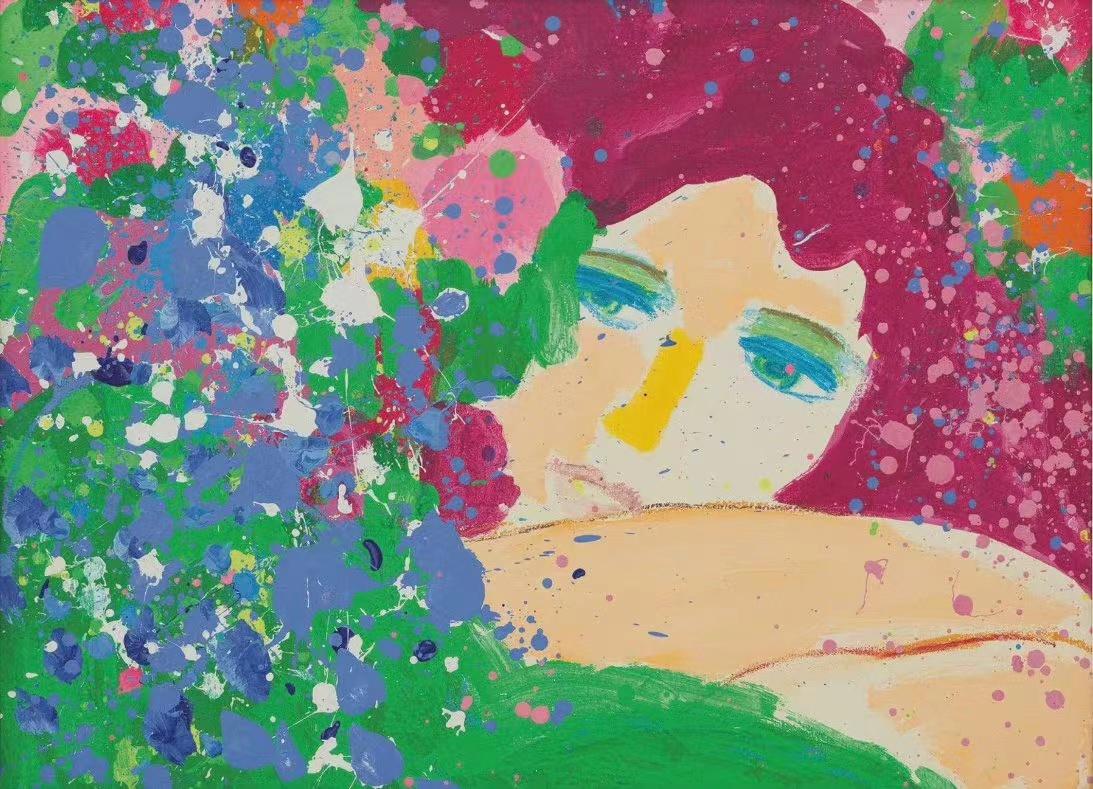
By the way, let me explain how did I realize this was a dream?
Well, the daughter in the dream was way too perfect in an unreal way. My daughter always got stains on her T-shirt. She never tidied up her room.She never shared her school life with me...The clean outfit, the organized bedroom and so on were all just my ideal expectations towards her, but my daughter, the girl I Ioved was an animated person with flaws.
On July 1st, 1995, Jennie came. It’s my Jennie. She mine.
After Jennie’s death in 1985, I moved to this one-bedroom apartment alone. I’ve always been living here.
Ten years later, Jennie came to me. She stood in the doorway. She looked young, just like she was ten years ago when she was killed. So I opened the door and let her in. My neighbor Mr. Sage passed by, “Hi Alyssa! Why did you open your door? I saw no one.” I closed my door. I’m not insane or something. I can see her. Jennie. My Jennie.
Since her death, I think of her constantly. Sometimes when I’m doing my chores, sometimes when I’m putting on my lipsticks, and sometimes when I’m in the middle of saying something. I think of her. She wouldn’t have died. It’s my fault. I should have run away with her. I should have stayed with her for a lifetime.
I met Jennie one day before her death. That was ten years ago. I was 19 then. I was kicked out of my parents’ house because they found out that I’m a, this word used to traumatize me, lesbian. My father’s fists almost separated the dining room. My mother’s tears dropped on the floor of the bathroom.

I got in my car--the car that my parents abandoned. Driving randomly was the only thing in my mind. Mascaras ran down my cheeks. I opened the car window. The sea breeze was salty, and my black tears too.
It was getting late. I was getting tired. A bar on the corner of the highway caught my eyes. The bar sign read “ Blue.” Blue Bar. Funny name.
That was one hot and dry day in June 1985. Midas put his hands on me again. I called him Midas because he believed that I was a stone and he could turn me to gold. In those mid-nights, when he said he was too busy at work to come home, I always felt the vacancy deep in my heart. Yet later, I learned that at the same time, one or more than one of the women he met in clubs or on the streets lying naked in his office bed.
I yelled at him with all of my strength. He said with fury, "If you can have a little respect, or if you can be like a wife, I might be able to make you gold."
Then I never let him touch me again, and I told him, "I am not a doll for you to play with when you get bored or a puppet that needs your money." So I said, "I'm leaving you, and I'm leaving you forever."
I have spent enough nights sitting on the uncleaned bathroom floor, trying to find some peace behind the half-closed wooden door.
I drove away in my white Chevy, driving away from the house we once called home. Having no idea how many minutes had passed, I spotted a bar called Blue. Well, it's a perfect match, because right now I feel blue.
I untied my hair and got off my car after checking it in the rearview mirror.
I never thought I could fall in love that night. Jennie was the prettiest in the bar. I came to her, and we talked. We talked a lot. It turned out we both had the kind of life. Terrible life. After a few shots, she asked, “Are you of drinking age yet?” “ No. I don’t care.”
Her eyes were flashing like highway signs, guiding me but also making me get lost.
We started to dance. Dance slowly. My heart was pumping. The lights went dim. The bartender was squeezing a lemon. Juice ran down the whiskey cup. In the shadow, we started to kiss. Kiss hard. I can feel her soft hair. Her hair was touching my cheek. Then her lips did too. She was stunning, but she looked tired. The kind of tiresome that went far beyond her age. She was 22 then. A little bit elder than me. But overall, we were both young.
I never thought I could fall in love that night.
I hoped the smokescreen and the darkness covered us well so no one could see. I was a little bit afraid. I was scared of being myself. I was afraid of, well, kissing a girl. I was scared of the way others treated people like me. I’m brave from the outside. But inside, I’m a total coward. For all my teenage life, I’ve sought to be recognized by others. However, it turned out I could never be recognized. My parents didn’t. The whole society didn’t. I mean, never. I really mean.
I never thought I could fall in love that night. Jennie was the prettiest in the bar. I came to her, and we talked. We talked a lot. It turned out we both had the kind of life. Terrible life. After a few shots, she asked, “Are you of drinking age yet?” “ No. I don’t care.”
Her eyes were flashing like highway signs, guiding me but also making me get lost.
We started to dance. Dance slowly. My heart was pumping. The lights went dim. The bartender was squeezing a lemon. Juice ran down the whiskey cup. In the shadow, we started to kiss. Kiss hard. I can feel her soft hair. Her hair was touching my cheek. Then her lips did too. She was stunning, but she looked tired. The kind of tiresome that went far beyond her age. She was 22 then. A little bit elder than me. But overall, we were both young.
I never thought I could fall in love that night.
I hoped the smokescreen and the darkness covered us well so no one could see. I was a little bit afraid. I was scared of being myself. I was afraid of, well, kissing a girl. I was scared of the way others treated people like me. I’m brave from the outside. But inside, I’m a total coward. For all my teenage life, I’ve sought to be recognized by others. However, it turned out I could never be recognized. My parents didn’t. The whole society didn’t. I mean, never. I really mean.

I haven’t gone to a bar since I got married. Though it’s not long, I got married last year. My life became plain then, and I even started tying my hair up. It’s funny because the first time I went to a bar was like high school. So technically, I could not drink at all, but still I went there with my high school best friends, who I hadn’t talked to since we graduated.
I’m so surprised to see the girl here. She reminded me of myself when I was younger. More surprisingly, she came to me when I was staring at her, and she said her name was Alyssa. I love that name. Then, she told me I was beautiful. To be honest, I’ve heard much of this by the frat boys and oily men. I seldom get flattered. But this time, her saying this made me dizzy. It’s so sincere.
I asked Alyssa to dance, and she seemed amazed. She clung to my body, and I put my cheek on hers.
At that very moment, I told myself: I will never go home. I wanna stay with her forever.
It’s almost midnight, and we decided to leave the bar. Walking out of the door, I tried to reach for Alyssa’s hand, but she refused me.
“People are watching us,” she said.
We spent the rest of that night in a motel near the bar. Alyssa danced with only her colored tube socks on. Then she smoked some joints under the shelter of the balcony when I was writing poems for her, dumping my elbow on the bathroom sink. After finishing, I was a little shy to read them aloud. I kinda wanted to make it a surprise for her, my Alyssa, so I found her jeans and put the paper in her pocket. Before bed, I whispered to her ear: “Put on your jeans first when you wake up the next morning.”
It was when night faded that Alyssa fell asleep. Her breath was gentle, and I watched her back in the early morning sunlight, wishing I could write my name on it.
That night, I kept thinking about what is love and how could I love someone I had just met. Is this really love?
I think I figured it out.
Alyssa, she sees me. She sees my struggle, my plight, my heart. She tells me it’s not my fault. She tells me I’ve done enough. She tells me I’m pretty. She soothes my aching body and aching soul. Hey Alyssa. I don’t really believe in true love, and I don’t really believe in the falling-love-at-the-first-sight thing. But I believe in you. But I think that the genuine connection with you, seen by you, understood by you, the wounds licked by you, the thighs kissed by you, these moments are worth remembering forever.
The poem I wrote for you starts with “ You clutched my brain and eased my ailing.”
White sheets, dim lights, and crooked teeth. This is right where it begins. I really fell in love that night and far more than that night. To be frank, for the rest of my life.
Alyssa, why are you hiding? Why are you fleeing from me?
The next morning I woke up with you. You asked what we should do next. “We should run. We run away forever. From the Purple Bar to the edges of the world. Go somewhere that we can stay with each other forever.” I said.
Your hand was holding mine, and I could feel it sweat. Your lips hung heavy underneath me. I thought I was getting small by holding you tight.
“I’m sorry, Jennie. I’m so sorry. It won’t work. We’d better not see each other from now on, or I’ll never forget you. I love you, Jennie. I love you, so I must leave you. It won’t work. We will not be accepted by this world. Two women. Jennie, I can’t run. We can’t run.”
We can’t run.
I went home.
Dear Jennie. My Jennie. It's my fault. It's my fault.
Yes, I know. I read the newspaper in town. I know. He shot you in your neck during the fight with you. I never thought it would end like that.
My neighbors asked me why I kept crying all day. I never told anyone about us. This is not a story to pass on. I probably should forget you to love myself. But I can't. Jennie, I can't. I think of you a lot. Ten years have passed, and I still think of you a lot. I love you.
You wouldn't have died. It's my fault. I should have run away with you. I should have stayed with you for a lifetime.
Jennie, you come. You are mine. You stand in the doorway. You look young, just like what you were like ten years ago when you were killed. I see you, Jennie. You know my door always opens for you.
I thought I had lost you.
I'll make it up for you. I'll stay with you forever. I'll love you.
I let you in. You touched my cheeks. Yes, I know, I look elder. I'm almost 30, and you are forever 22.
Jennie has been at my apartment for ten days. I haven't gone outside for ten days. There's basically nothing to eat at my apartment now. But still, I won't go out. I'll stay with her. I'll make it up for her.
I can do anything for her. I listen to everything she says. We cuddled on the couch, danced on the balcony, and we talked a lot. I tell her everything that happened during the 10 years. Her husband was executed. My father passed away. And a lot of other things.
I've always been with her for the ten days. I don't want to lose her. She wrote her name on my back. Jennie. I'm yours.
I'm getting smaller. Jennie is getting larger and larger. She could devour me. She is craving my love. She is greedy. And I'll do whatever she wants to make it up for her.
We headed to the door, shoulder to shoulder.
I don't think anyone can see Jennie besides me. So maybe I'm acting strangely in other people's eyes. But who cares. I have Jennie. My Jennie. I'll stay with her forever.
The bar doesn't change much. The light is still dim. The music is loud. People here are heartbroken.
I start to hold her hand, and our fingers cross.
At that moment, Jennie disappears.
This evening, she asked me to go to Blue Bar, where we first met. "I want to love you forever. Love you in the sunlight. Love you openly," Jennie says.
It's been ten years, but I know Blue Bar is still there. I've driven past it a million times, but I don't have the nerve to go into it. I'm scared. I'm scared of my love here. I'm afraid of confronting the past, confronting myself, and confronting my love.
I start to drive. Jennie is sitting in the passenger seat. She puts her hands on my thigh. Roaming on the highway for the first time in my life, I feel free. I feel that I'm me. I'm a gust of wind, a wanderess, a one-night stand. I don't belong to no places. Facing the neon lights in the distance and the lighthouse by the sea, Jennie, I can belong to this night, I can belong to that night, I can belong to you.
I stop my car. I see Jennie checking her hair in the rearview mirror. We get out of the car.
